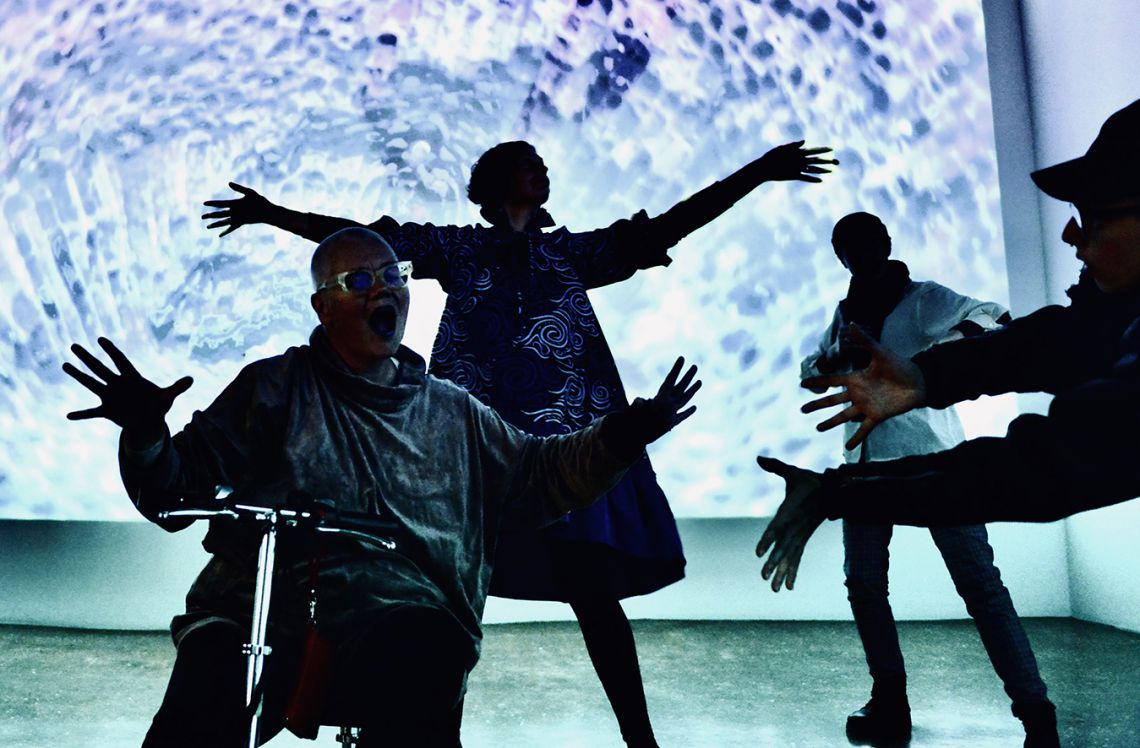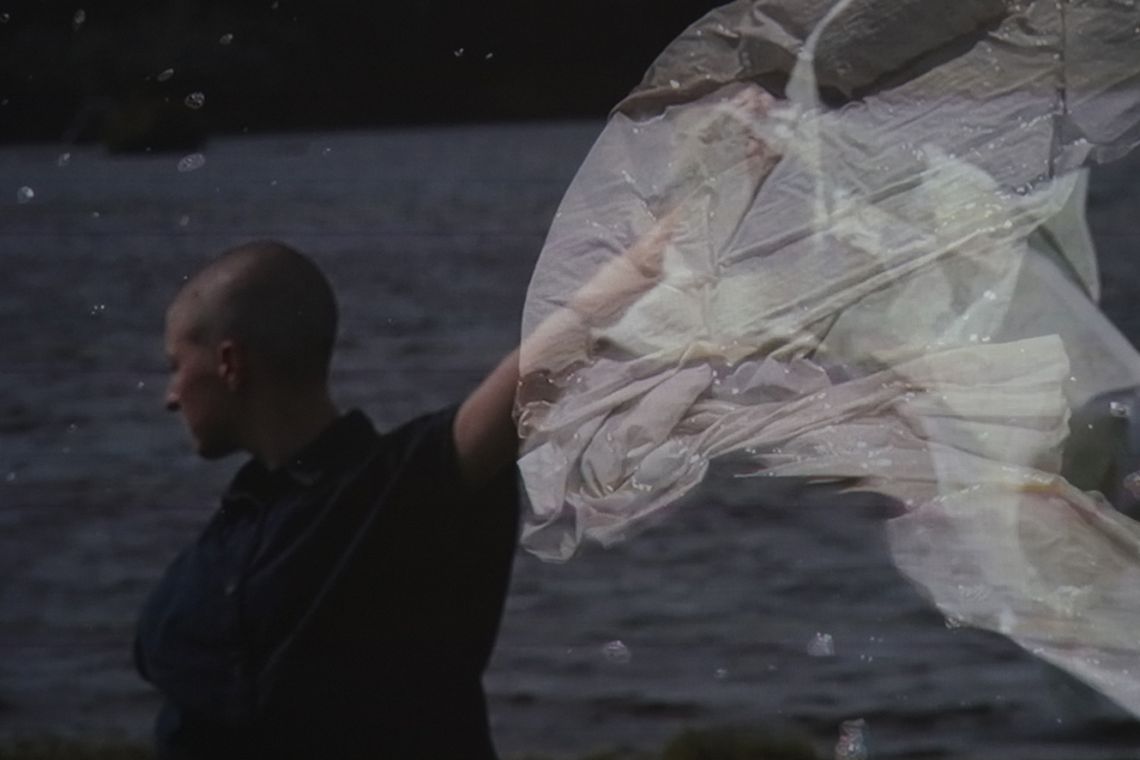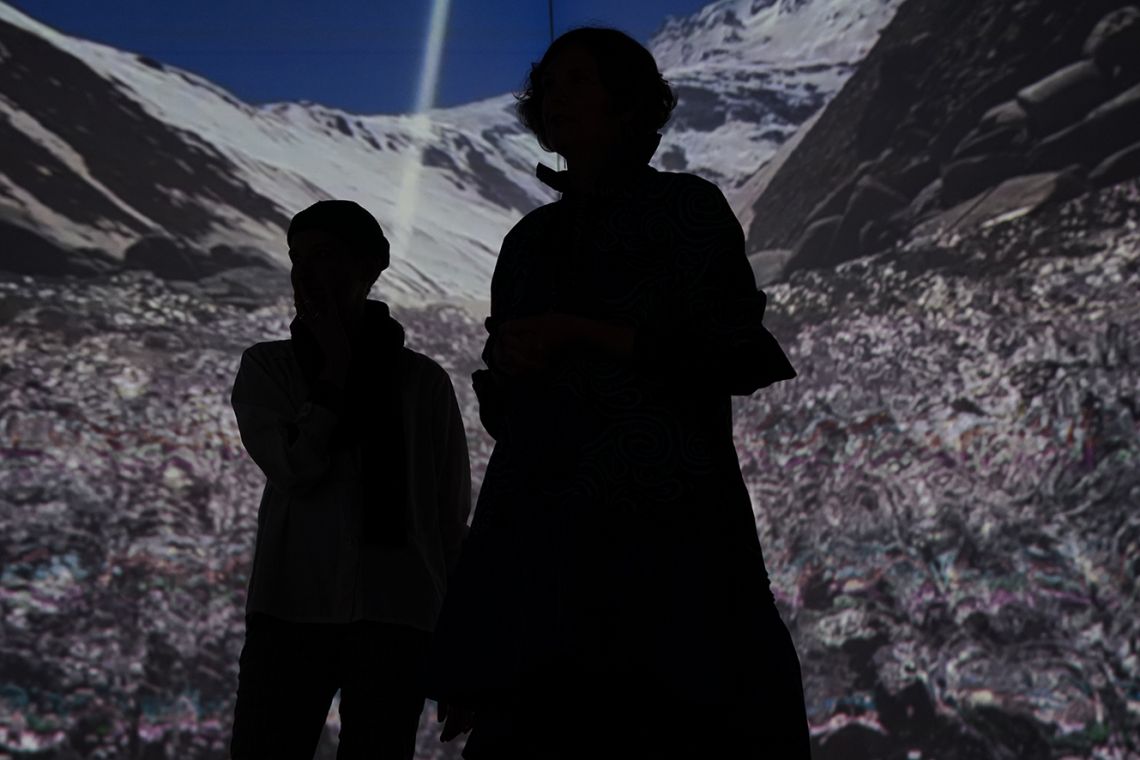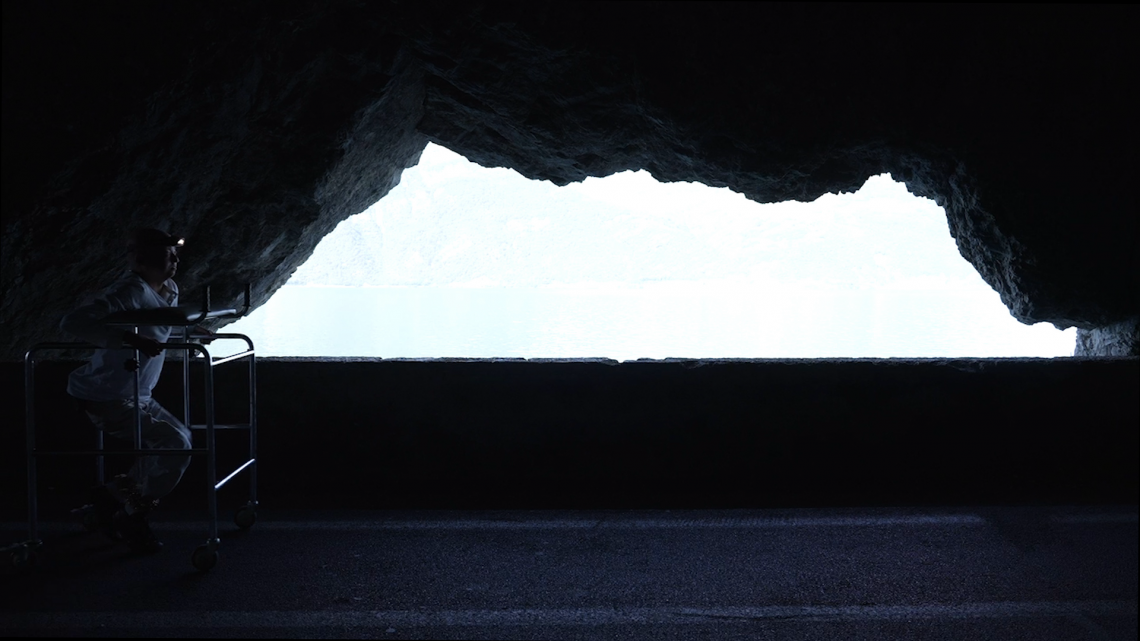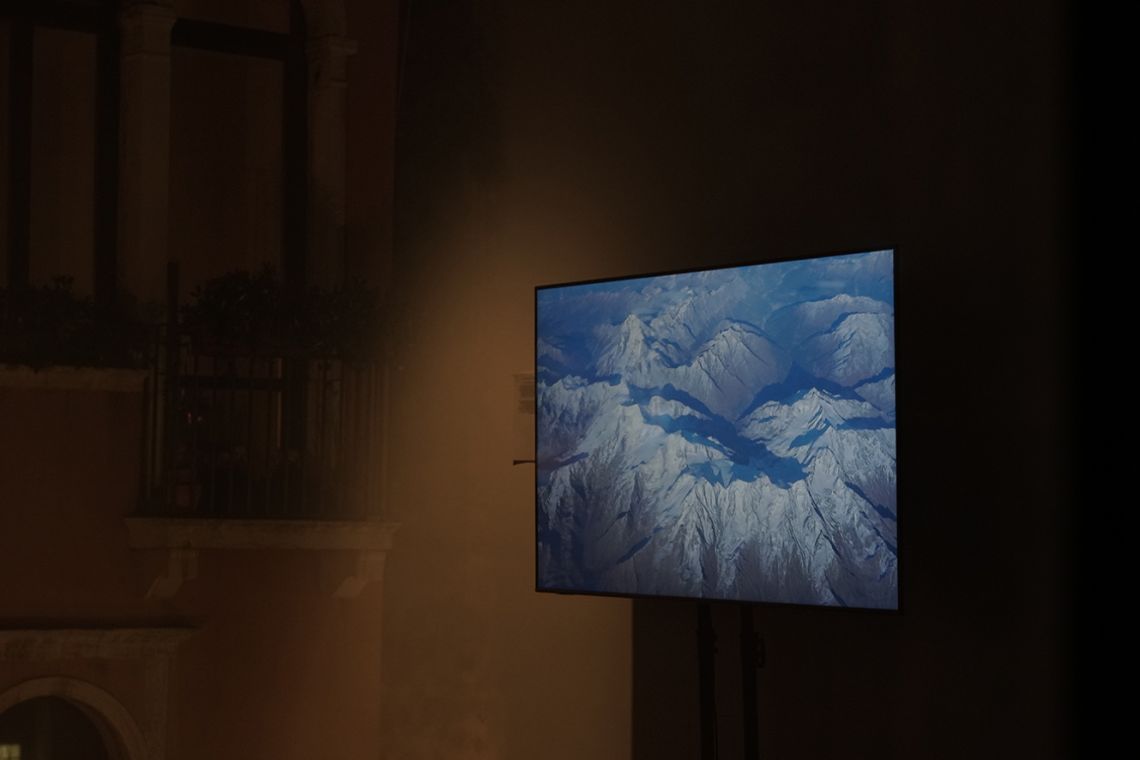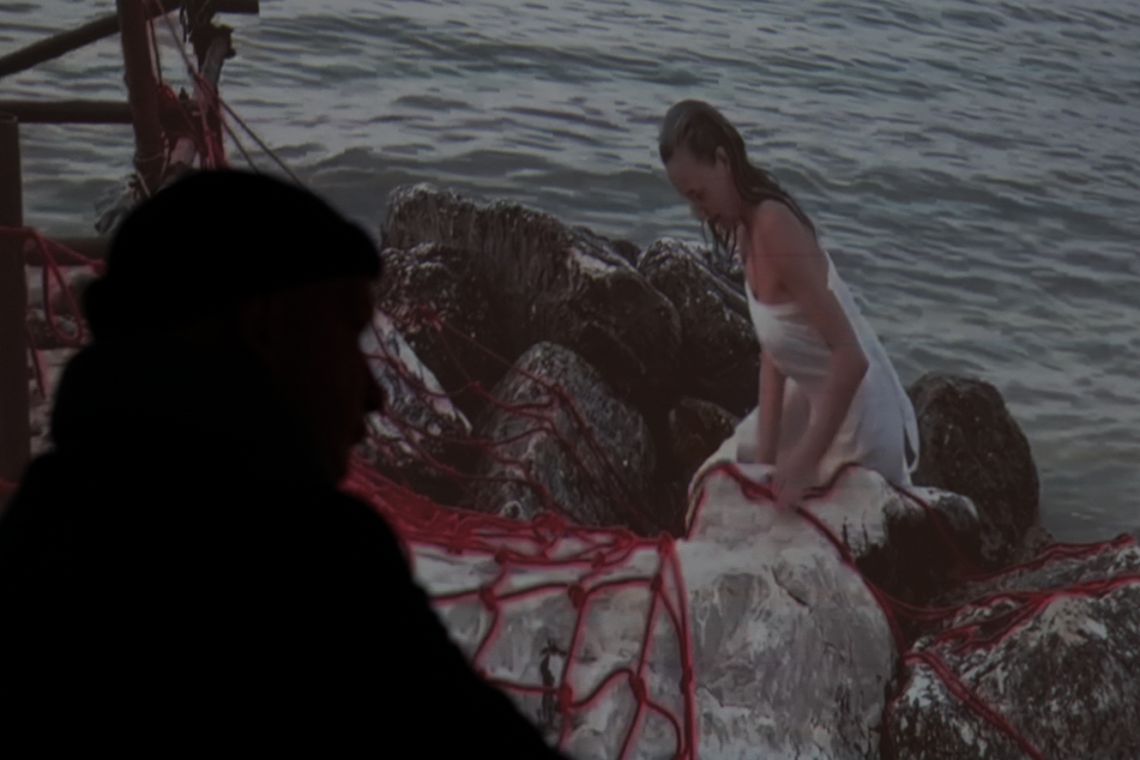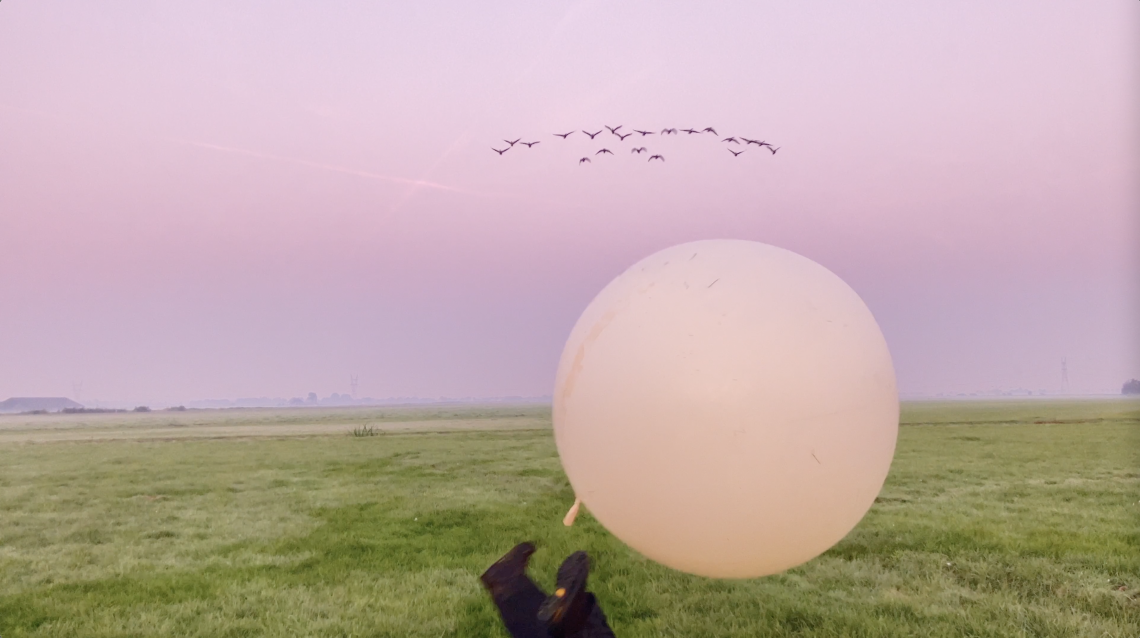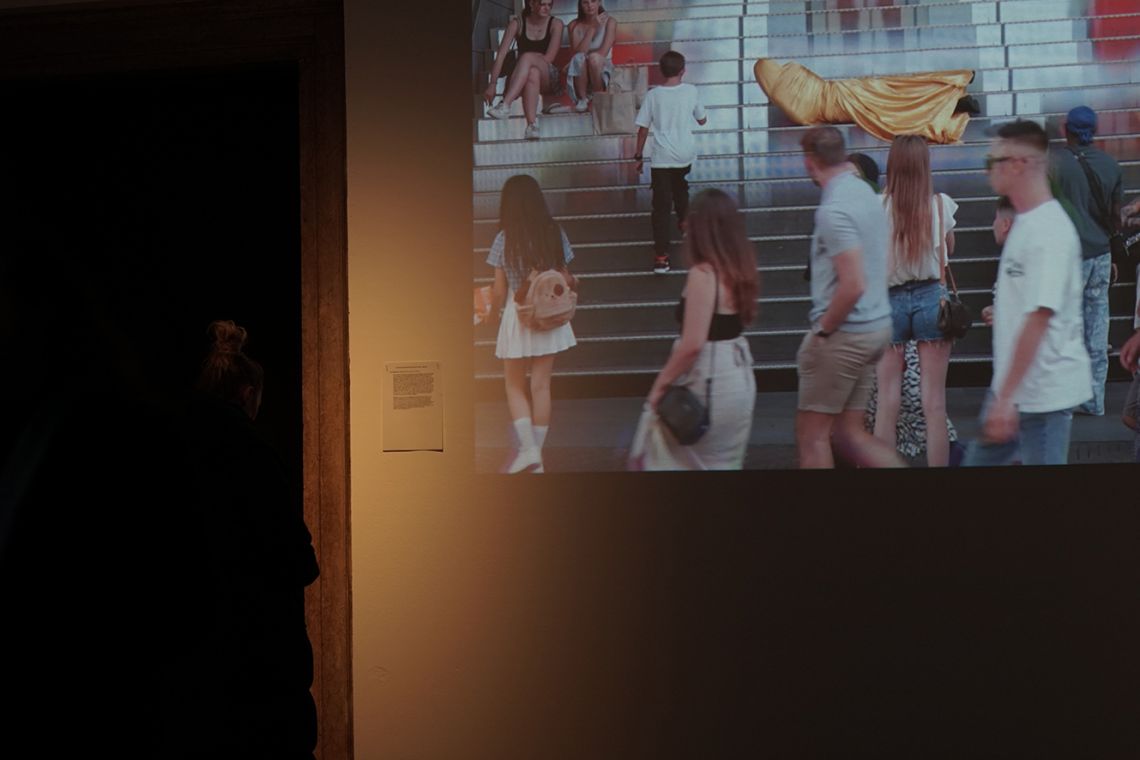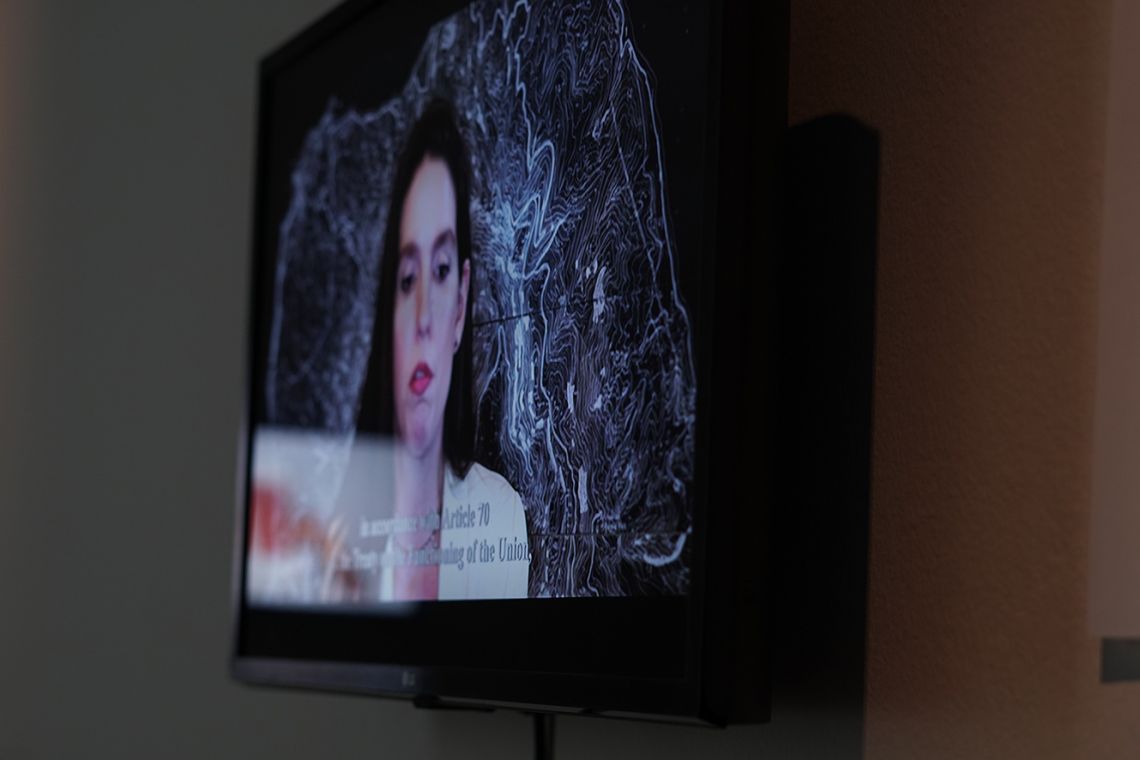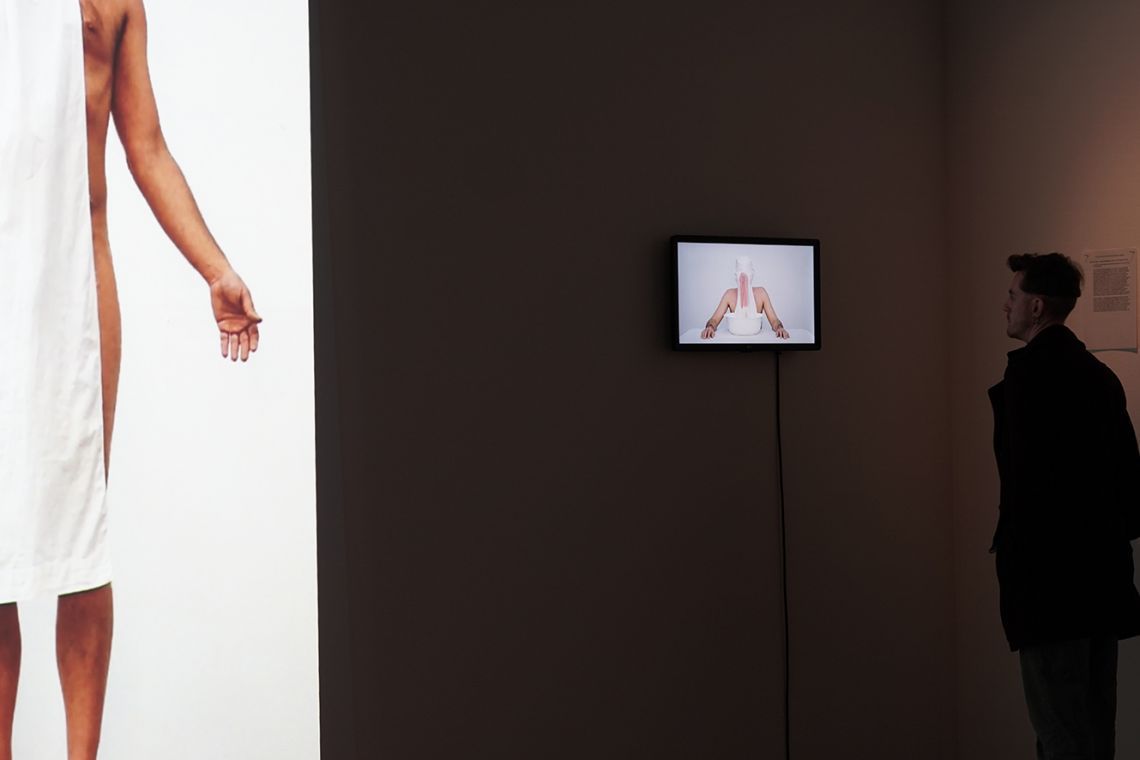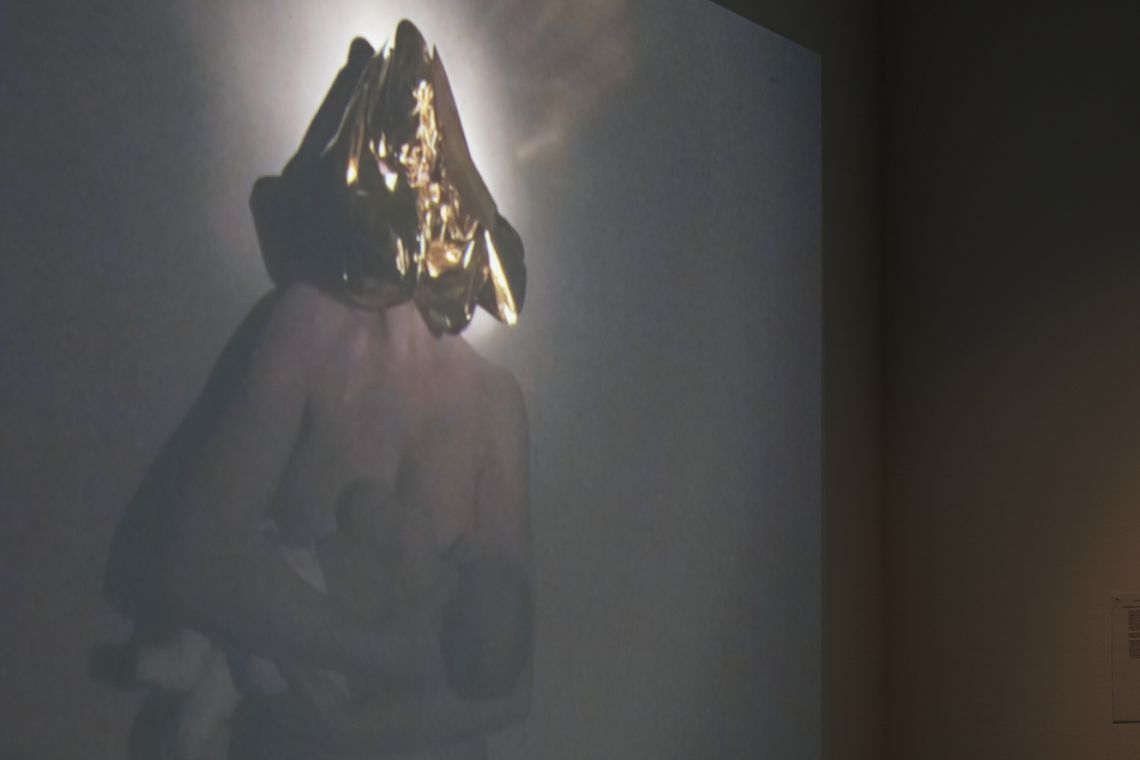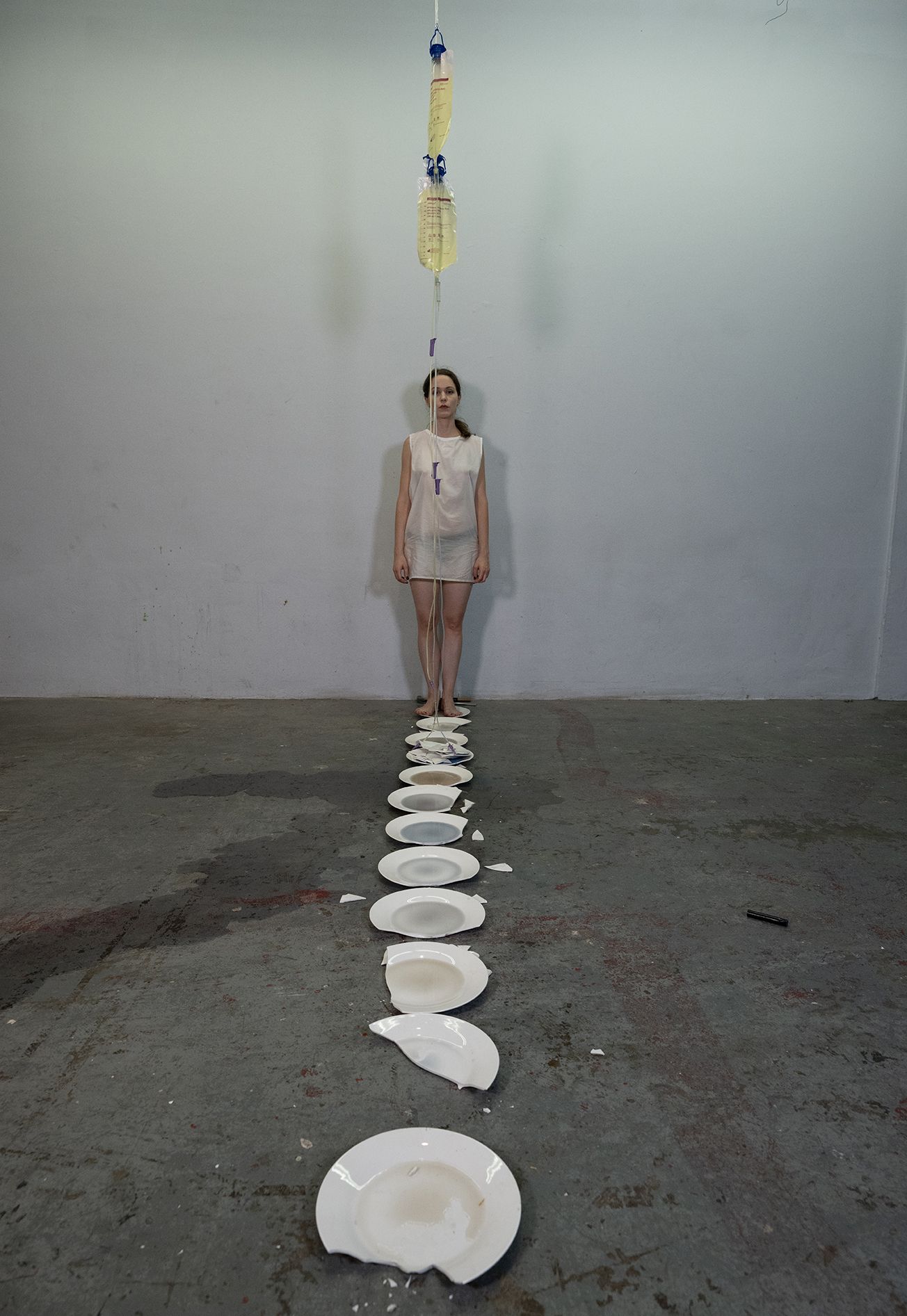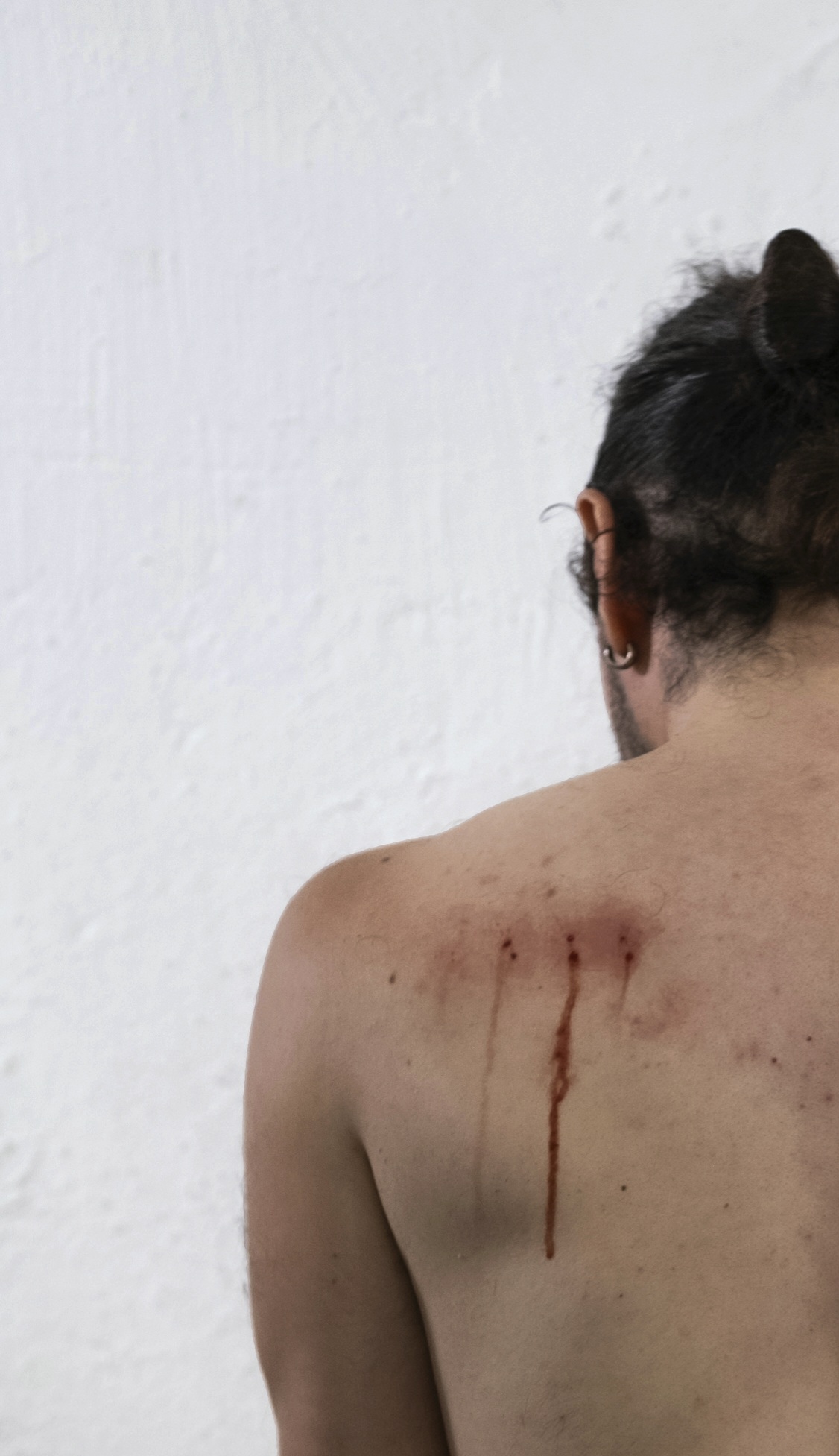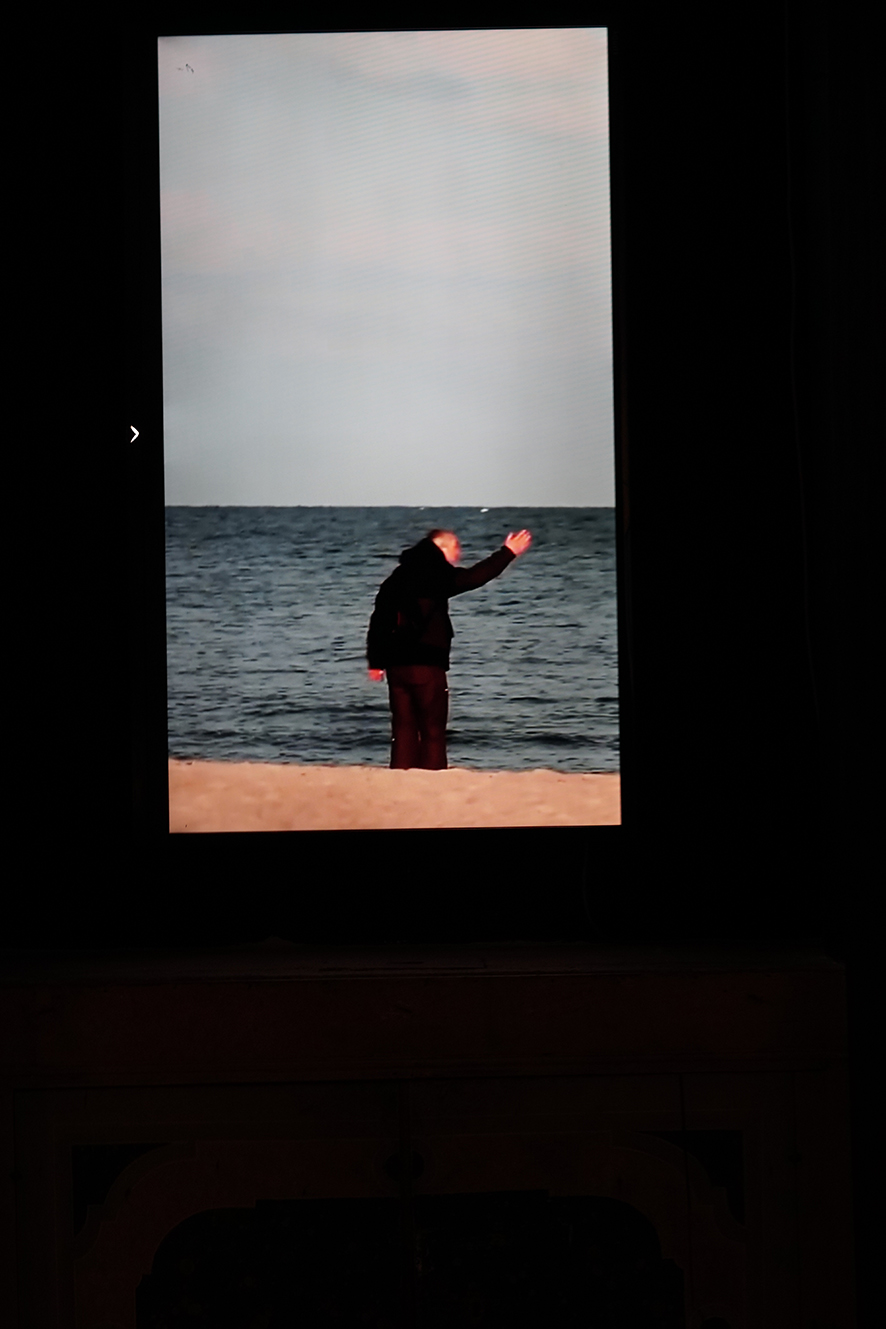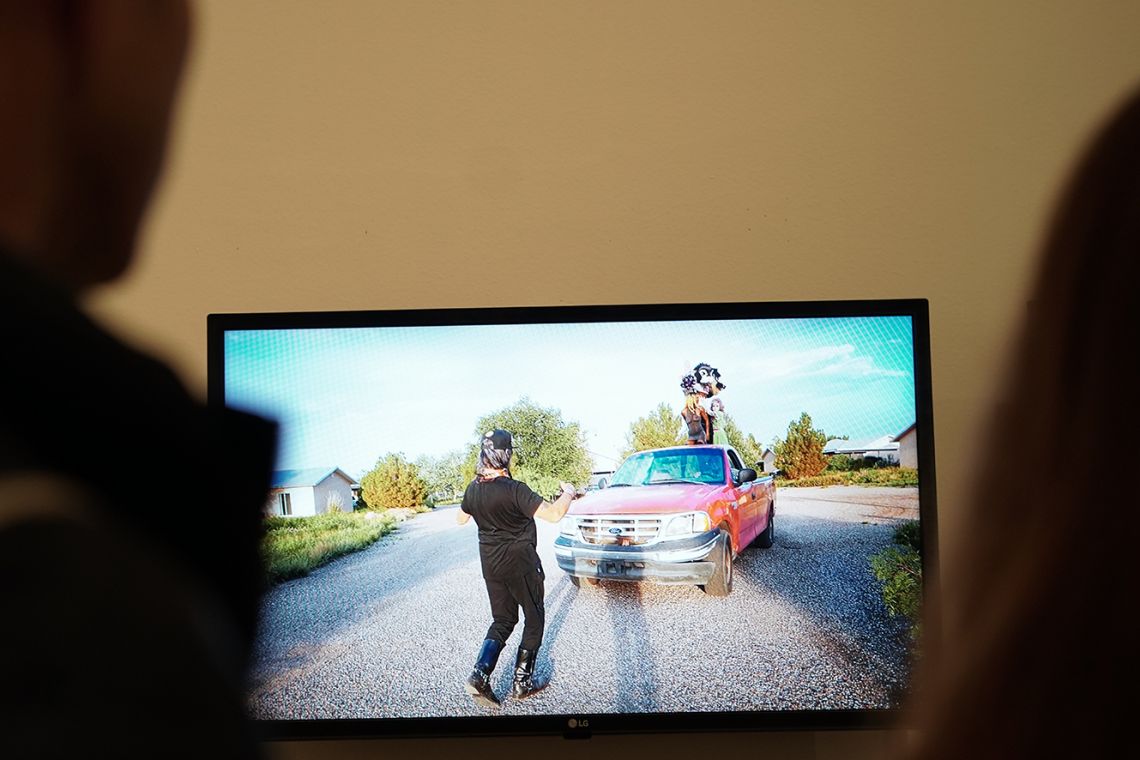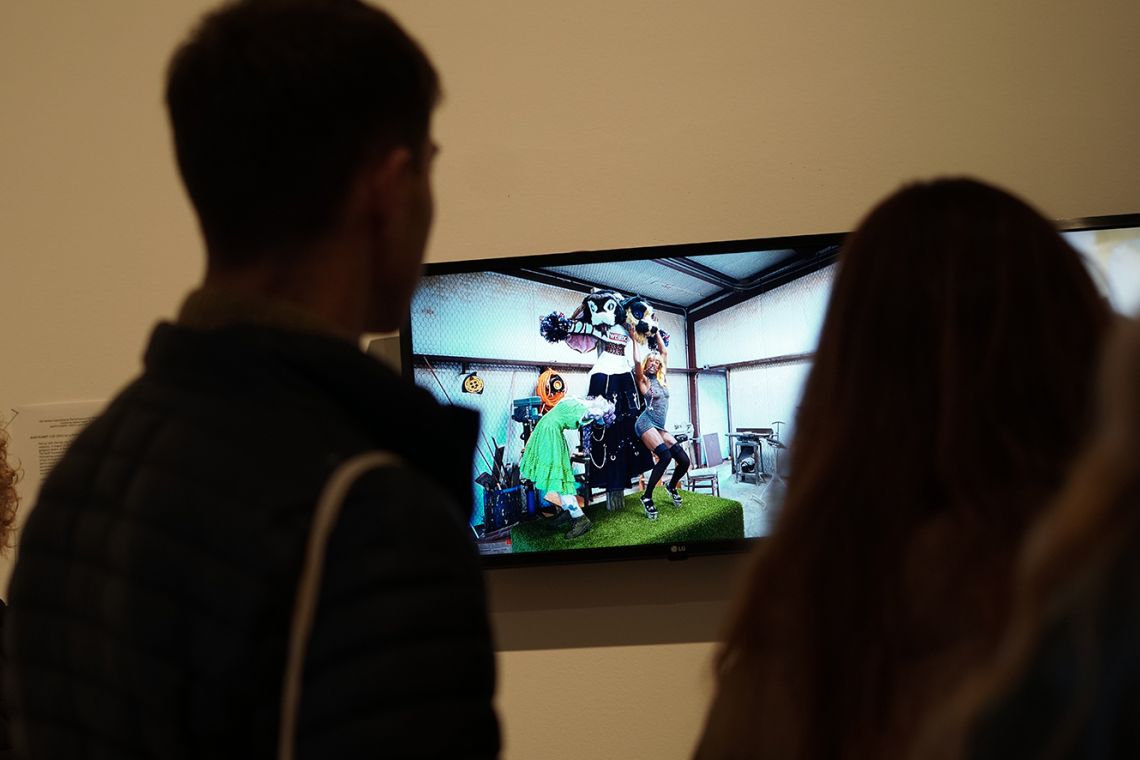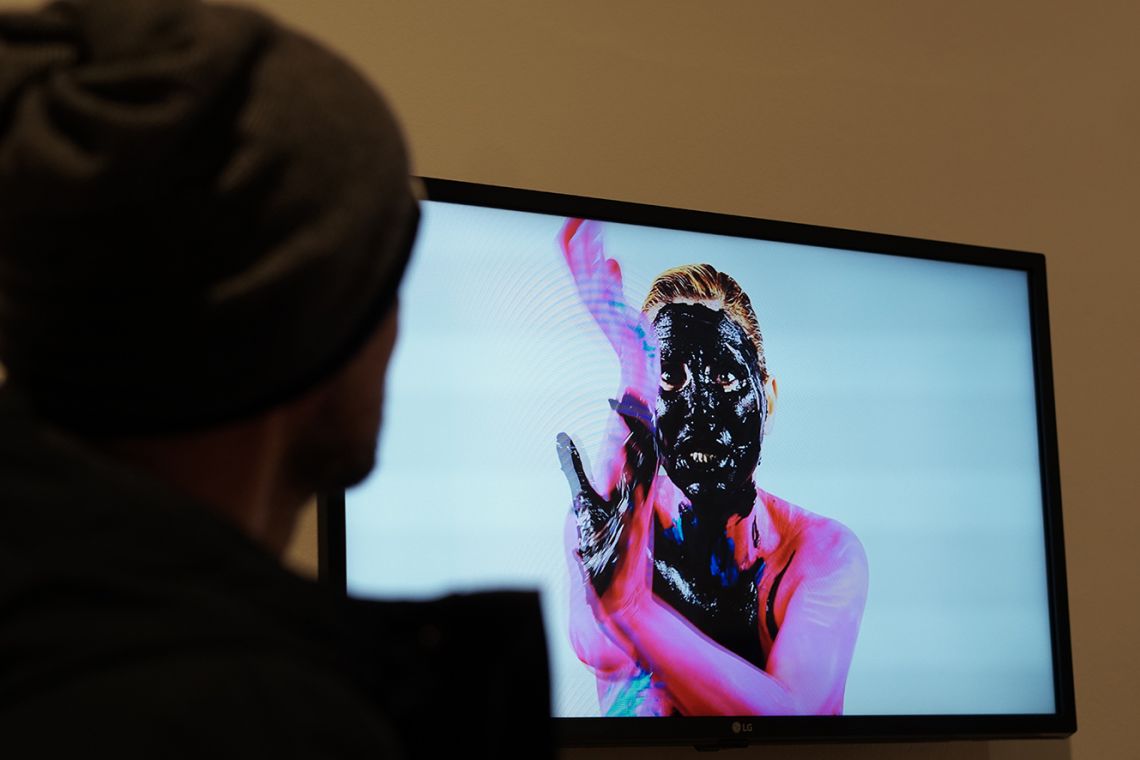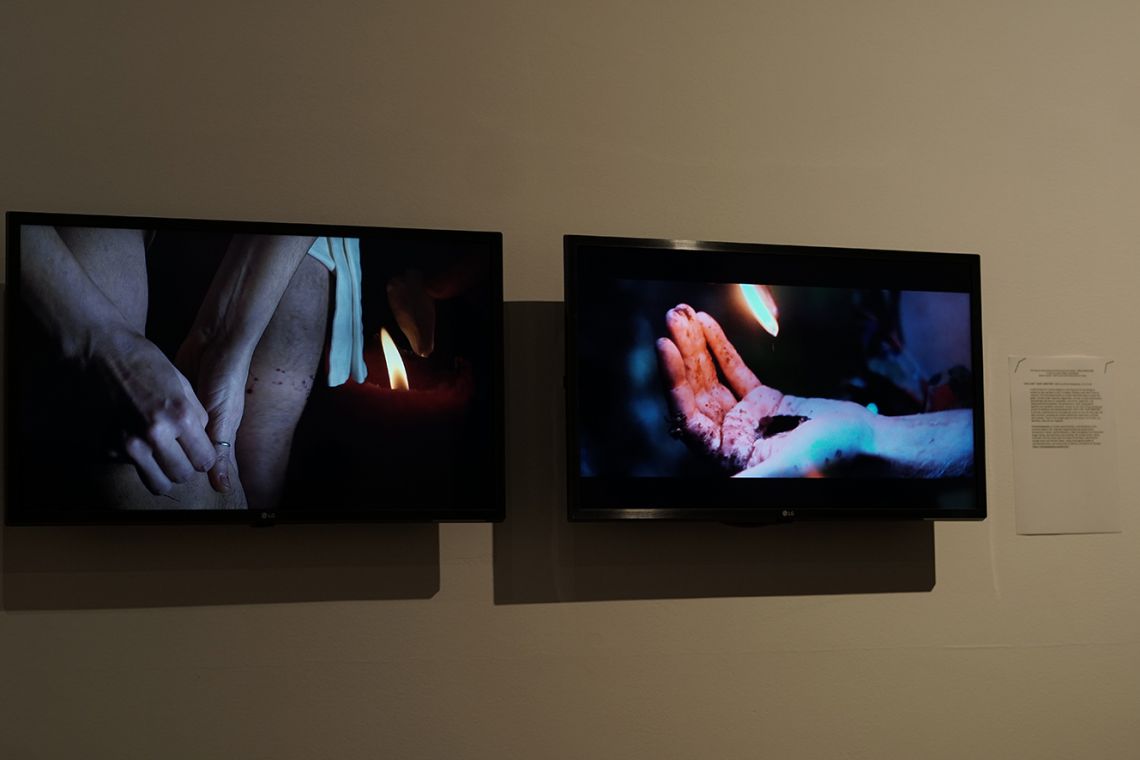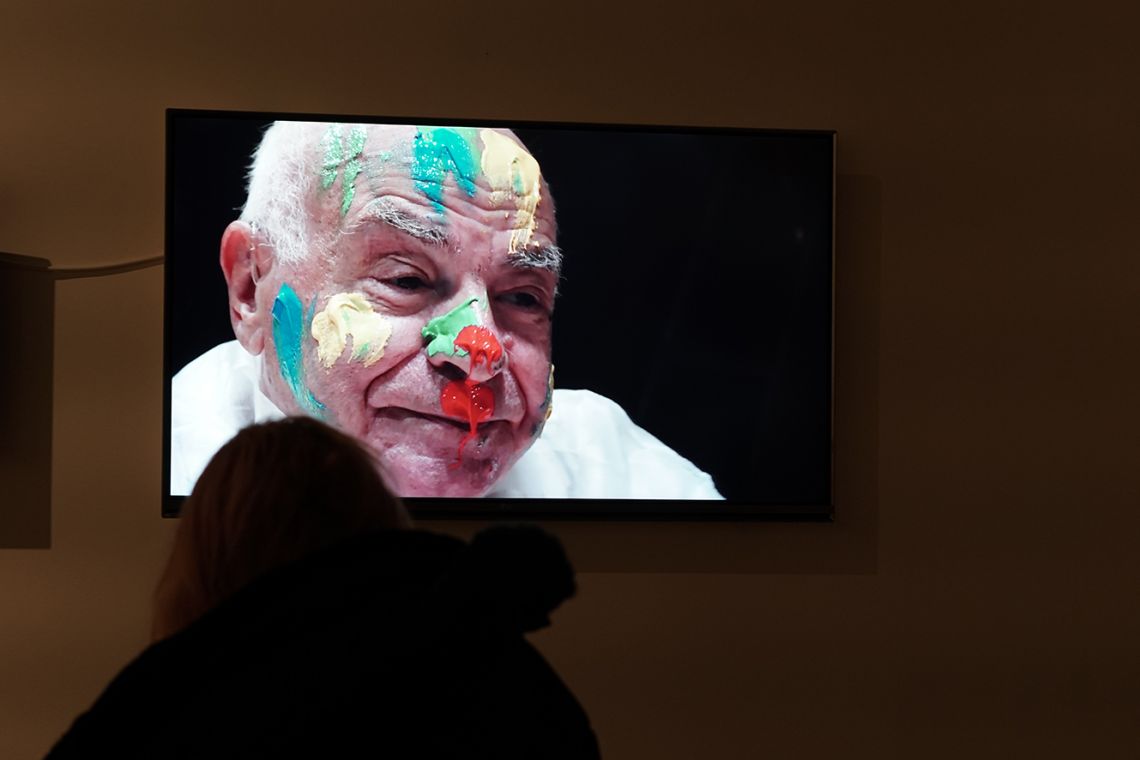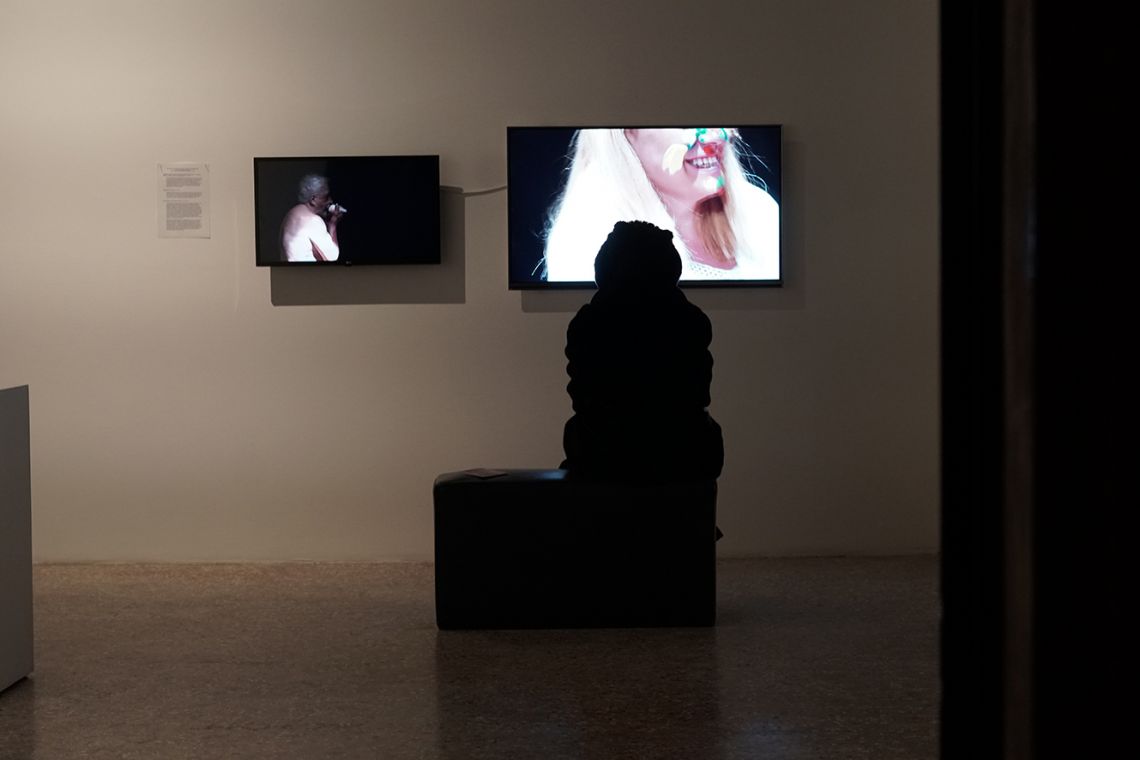• DIGILABAIR | Emergencies of the Contemporary (2023)
European Cultural Center – Palazzo Mora
Strada Nova 3659, Venice, Italy
December 15 – 17, 2023
Inauguration: Friday, December 15, 2023, 5:00 pm.
On Saturday 16 and Sunday 17, the exhibition is open from 11:00 am.
The VIII VENICE INTERNATIONAL PERFORMANCE ART WEEK 2023 presents DigiLabAir | Emergencies of the Contemporary, focusing on sustainable development as a fundamental principle of our societies. The DIGILABAIR exhibition comprises 24 performance-based video works, 15 realised during digital art residencies hosted by the five project partners' European non-profit cultural associations. The results are further disseminated on the PAV Performance Art Video online platform, launched on this occasion.
EMERGENCIES OF THE CONTEMPORARY features a live performance program with internationally recognised and emerging performance artists addressing pressing issues such as marginalisation, poverty, climate emergency, migration, accessibility, social and gender equality, justice and peace.
+ WATCH THE VIDEOS on PAV Performance Art Video
Petra Kuppers Terrestrial Crip Drift: Venice
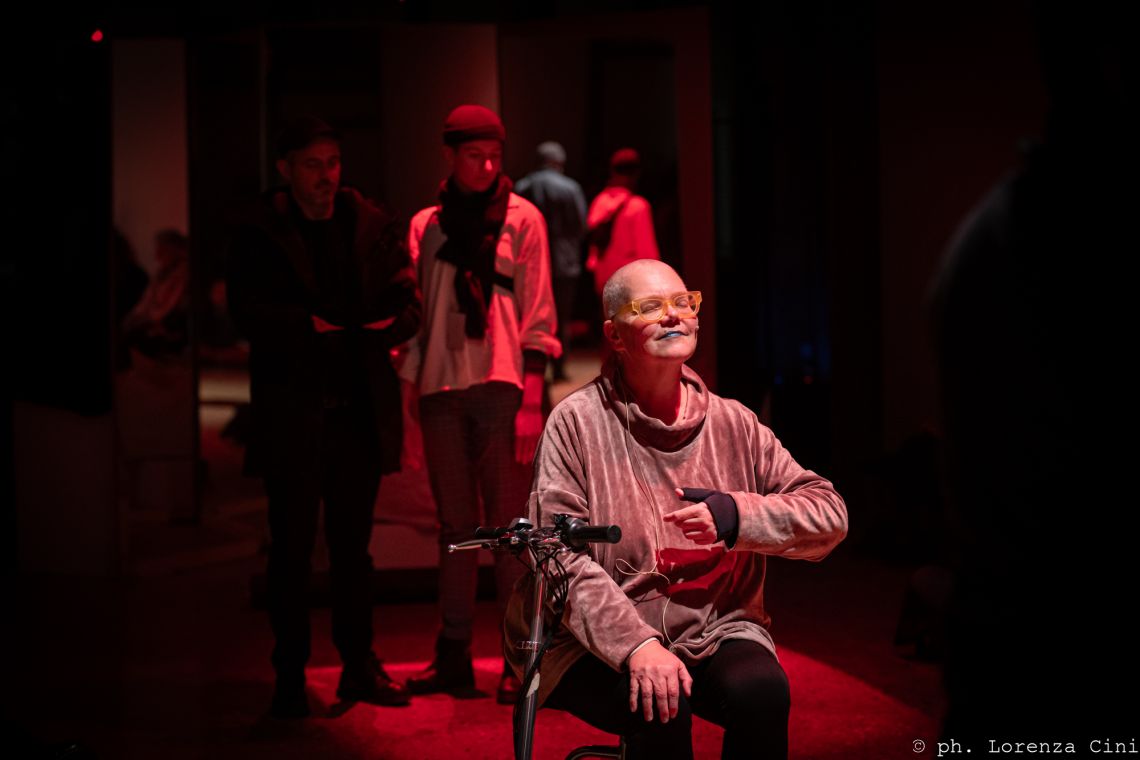
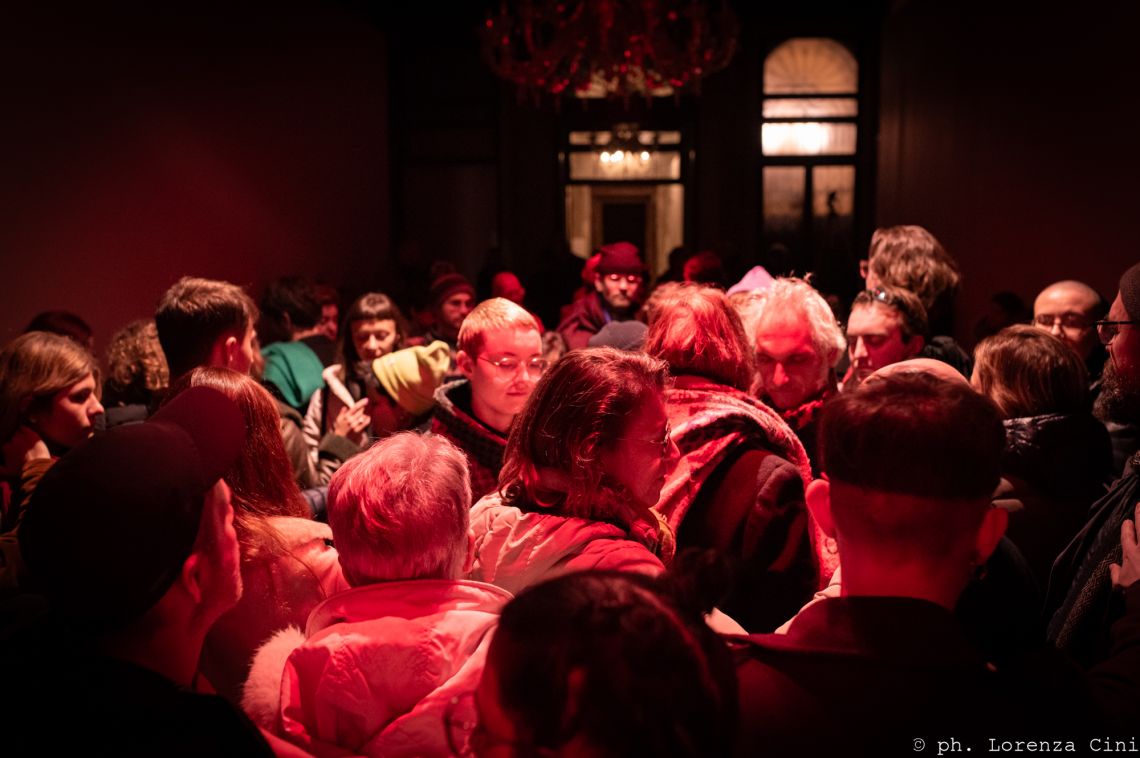
I take inspiration from Palazzo Mora itself and its building materials to go on a dream journey that allows us to be in touch with time, with one another, with humans and more-than-humans that have lived on this site. How can we expand our sense of self? How can we drench ourselves in all the waters in connection? How can we become open to the world? Let’s become permeable together, drifting and dreaming in this place.
Petra Kuppers is a disability culture activist and a community performance artist. At the core of her practice, she creates participatory community performance environments that think/feel into public space, tenderness, access and experimentation. She grounds herself in disability culture methods and uses somatics, performance, and speculative writing to engage audiences toward more socially just and enjoyable futures.
Curated by VestAndPage. Presented in collaboration with the Goethe-Institut Mailand. Photographs © Lorenza Cini
Andrigo/Aliprandi 7 [arias]
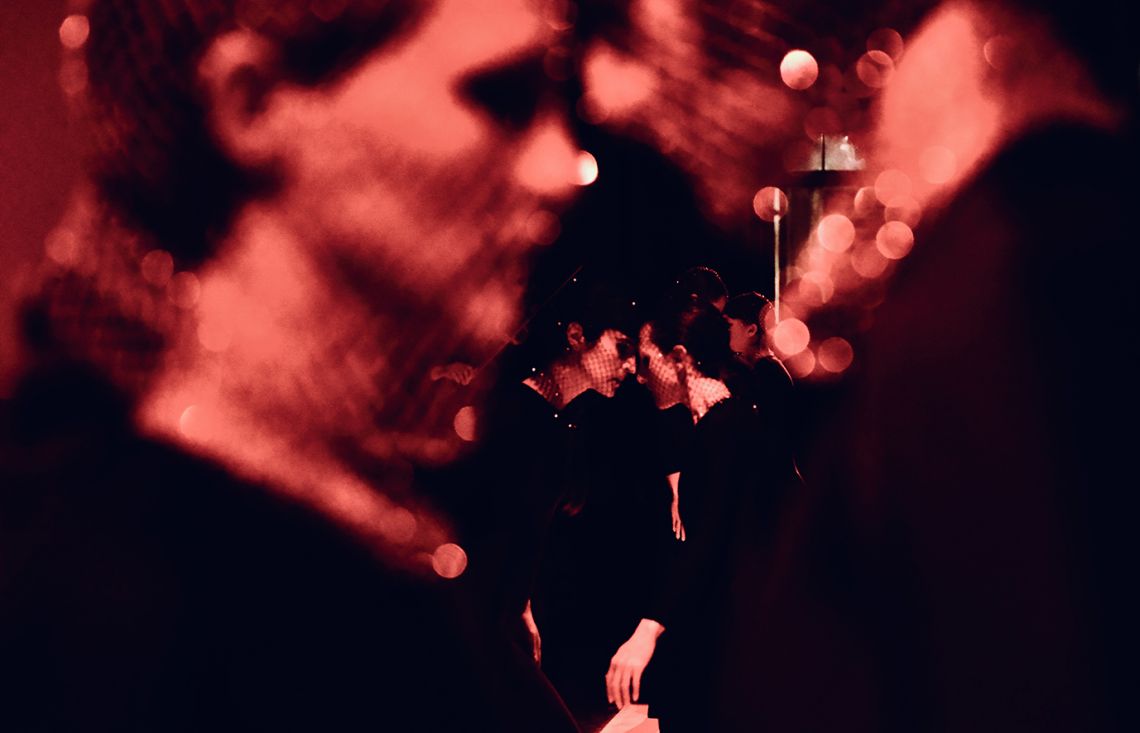

The border is porous. The line fluctuates. Thus, they are neither a border nor a line. The air flows inside, outside and beyond. Boundaries shift. New fertile fragilities are organised. Bodies create possible gaps, complicating consistency. Epicentres crumble: displacement, acceleration, and rotation allow the voice of the nerves to emerge and say something else—broken, anew.
Marianna Andrigo and Aldo Aliprandi combine dance, performance art, sound motion, philosophy, video, installations and site-specific performances often characterised by the full verticality and the consequent shiver it triggers. Their poetics cluster around detail, silence, and entropic dynamics caused by emotions and perception.
With Anna Maschietto, Ilaria Bagarolo, Elena Ajani, Maria Cargnelli, Michela Lorenzano, Valentina Milan. Violin: Elisa Righi.
Curated by VestAndPage. Photographs © Edward Smith.
Nicola Fornoni The Beginning (Light)
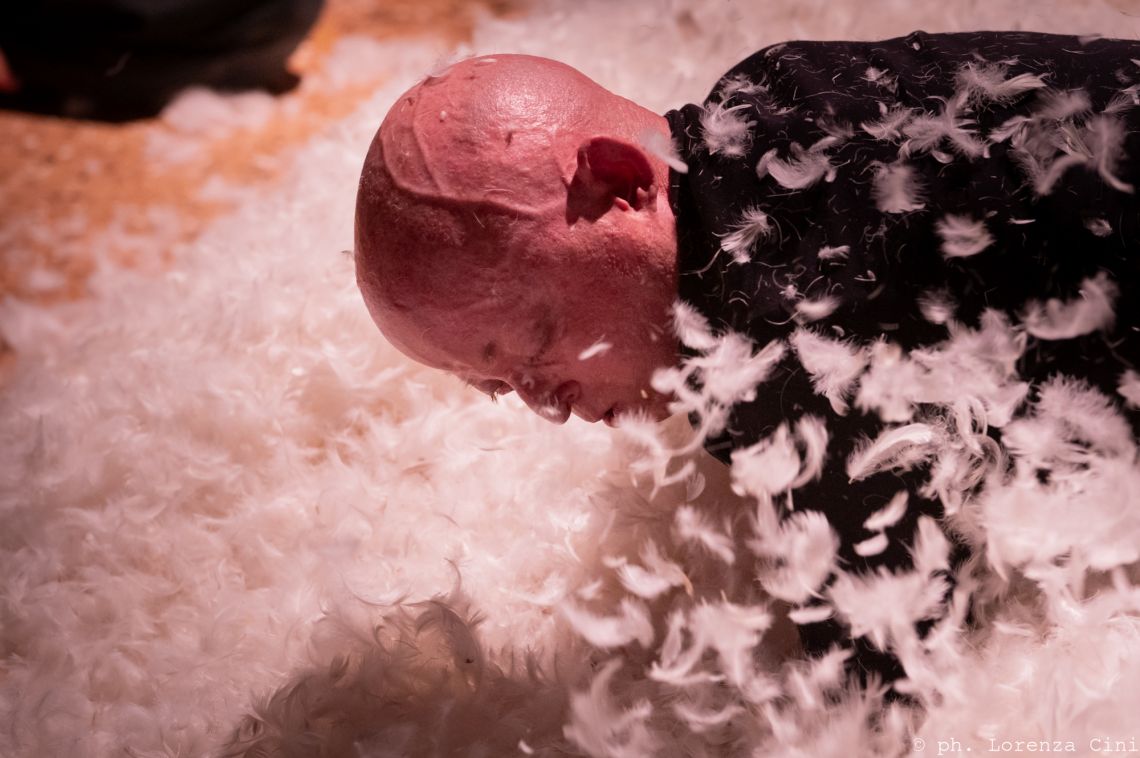
A feather is very light, but when there are many, it is complicated to move them just by breathing. 3 is the perfect number—a symbol of vitality. I blow on 3 kg of white feathers and invite you to join me. Our breaths will meet between order and disorder, help and obstacle.
Nicola Fornoni uses performances and video art as languages to dissect social issues and the themes of otherness, committed connectivity, accessibility, and union. Many of his works are relevant to his life and have a visual, symbolic impact. He challenges himself, deploying his art as a natural remedy, a source of freedom, a way of healing, unveiling the fragilities of the human body without remorse.
Curated by VestAndPage. Photograph © Lorenza Cini.
Franko B Reflecting Wounds
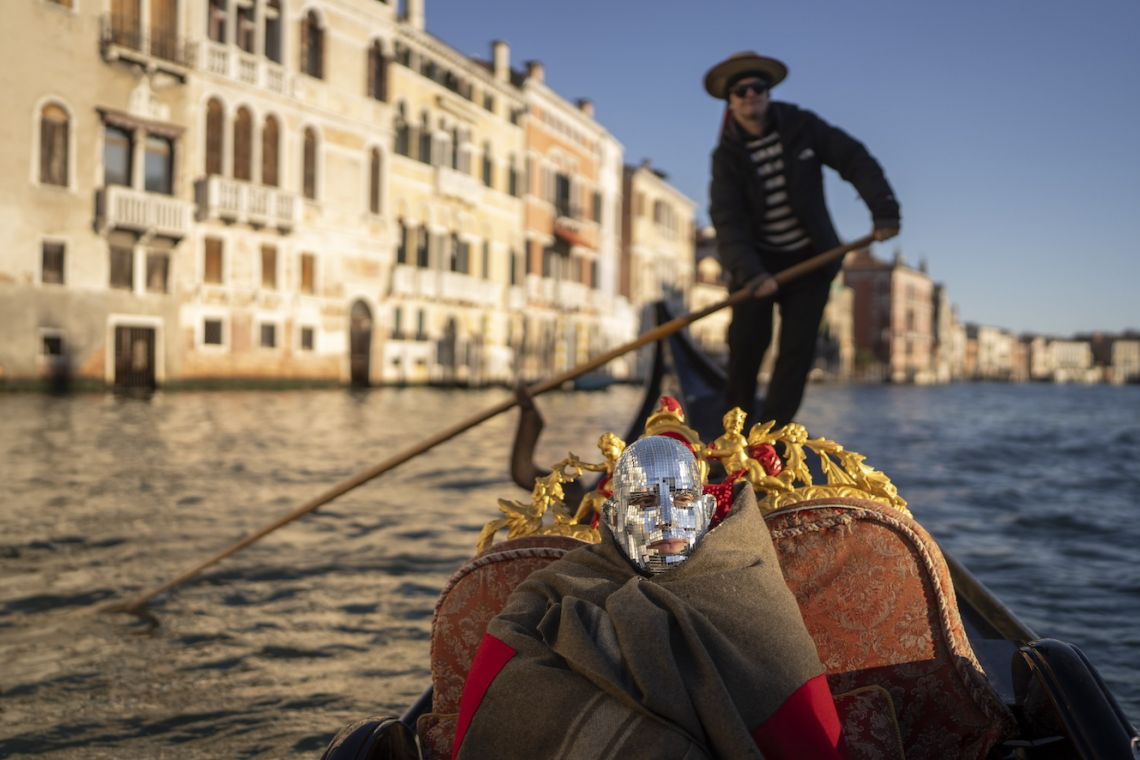
As always, I am not interested in just telling my story. I tap and share the story told and untold of our humanity, which I live through witnessing these present times—for I’m here, in this space, and not alone. This performance is a journey through personal and collective memories and history. The body and the artist’s body become a canvas, a sculpture, poetry, and a sound, too.
Franko B is a visual artist, curator and teacher. He rose to prominence in the 1990s due to his extraordinary body-based performances, which have no specific start, finish, or order and shared memories via image-making. His artistic practice continuously expands across video, photography, painting, sculpture, mixed media, and performance.
Curated by VestAndPage. Photograph © Hugo Glenndining.
Yiannis Pappas Universal Rights i.e. Naked Statelessness

A contagious, symbolic discourse, functioning as a mechanism to challenge the prevailing inclination towards the uniformity of thought and behaviour. Moral principles and the body’s relationship to citizenship from the Stoic philosophy perspective. The existential unease within today’s civilisation. Human rights are achieved through united efforts and resilience during oppression, devastation, and lamentation.
Yiannis Pappas is a multidisciplinary artist. Deploying an anthropological and phenomenological approach, he explores the relationship between space and the human body placed in natural and urban environments—space sustained collectively and individually, sites of physical, symbolic enactment.
Curated by Francesco Kiais / G.A.P. Gathering Around Performance. Photograph © Lorenza Cini.
Marta Jovanovic SOLA

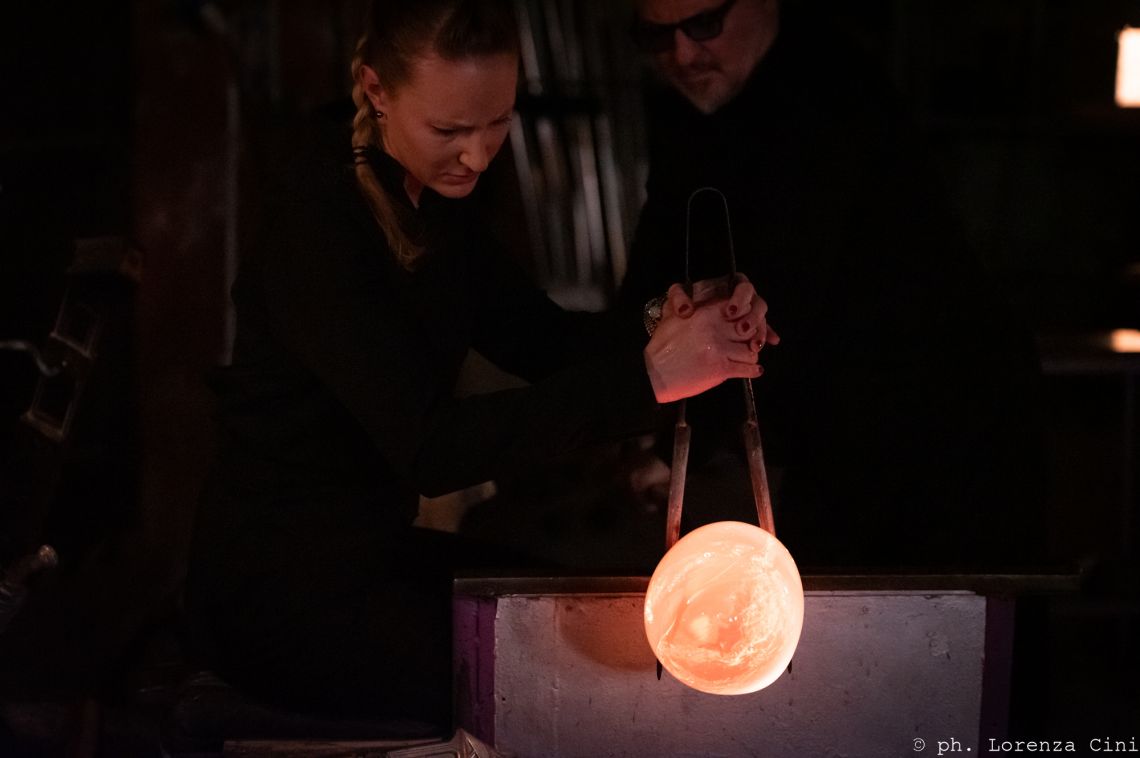
Using hair as a symbol, this performance reflects on experiences of loneliness and isolation. but also on solidarity and the hope that holds out against them.
Marta Jovanović is truly an artist of the twenty-first century. She can no longer call one country home after living in Europe, the Middle East and North America. Her practice moves effortlessly between performance, sculpture, video and installation. She is interested in the legacy of feminism, but she also has deep admiration for her male forbears. Are these contradictory stances? They should not be. — Kathy Battista
Curated by Anja Foerschner. Photographs © Lorenza Cini.
Sabrina Bellenzier 112
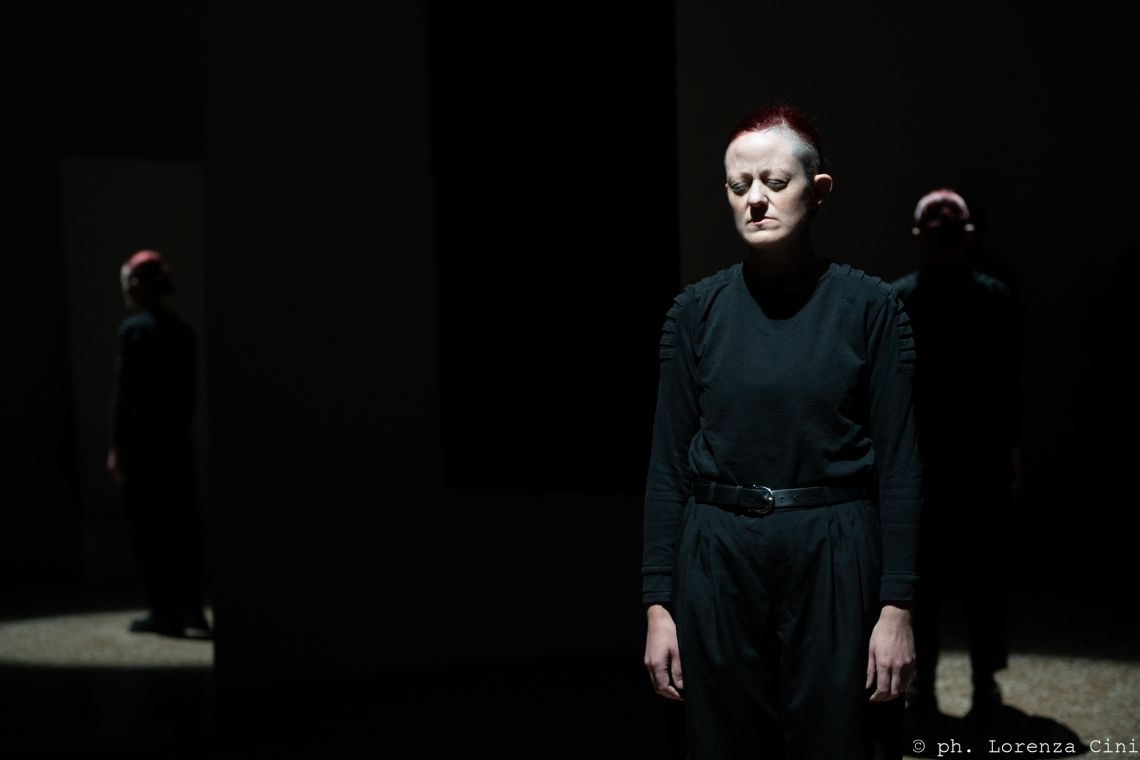
112 creates a meditation on the state of emergency and heartbreak of our present time versus the widely perceived need to continuously display a mask of success and happiness, to force oneself into numbness. The performance shatters this surface, imposed by nowadays mediatised culture and capitalistic drive, and confronts the audience with the reality of raw emotions, with their own hidden emotional states and feelings, with their own naked self.
Sabrina Bellenzier investigates the relationship between the body and power structures, researching counter-narratives, glitches and cracks by considering the intersections of memory and space grounded in decolonial and queer perspectives. They contribute to art projects to support women, queer people and other marginalised groups in the Caucasus.
Curated by VestAndPage. Photograph © Lorenza Cini.
Giorgi Rodionov Military Friend
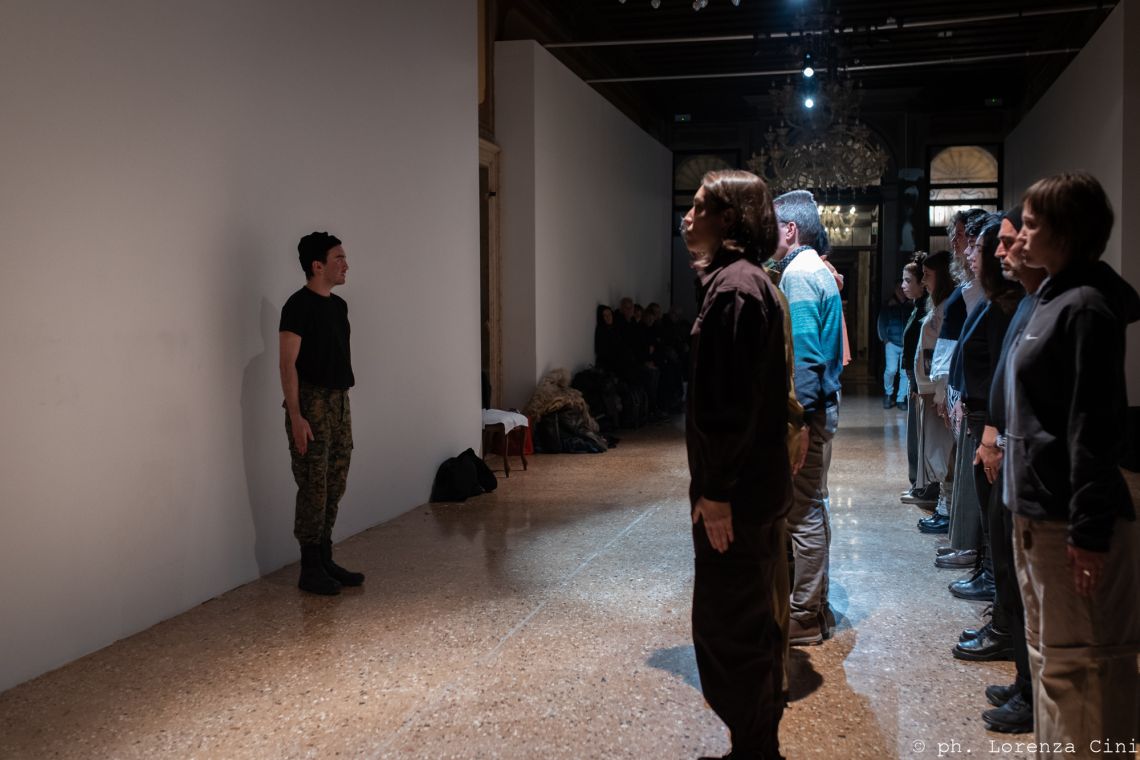
A participatory performance that delves into the intricate dynamics between social structures and individual adaptation, grappling with the need to adapt or relearn behaviours one already has. In military training, basic actions are meticulously taught. Entrenched in an educational paradigm, they perpetuate the belief that leaders are infallible. The performance also mirrors contemporary migration challenges.
Giorgi Rodionov, an artist/curator, grew up in a post-Soviet country. His interest is in social structures and identities. In early 2019, they established the art space Untitled Tbilisi, which aims to unite artists from the South Caucasus to use art as one of the main tools for promoting human rights and social justice in the region.
Curated by VestAndPage. Photograph © Lorenza Cini.
Vicky Maier & Steef Kersbergen Becoming My Non-Binary Body: Roots Extending Invisibly
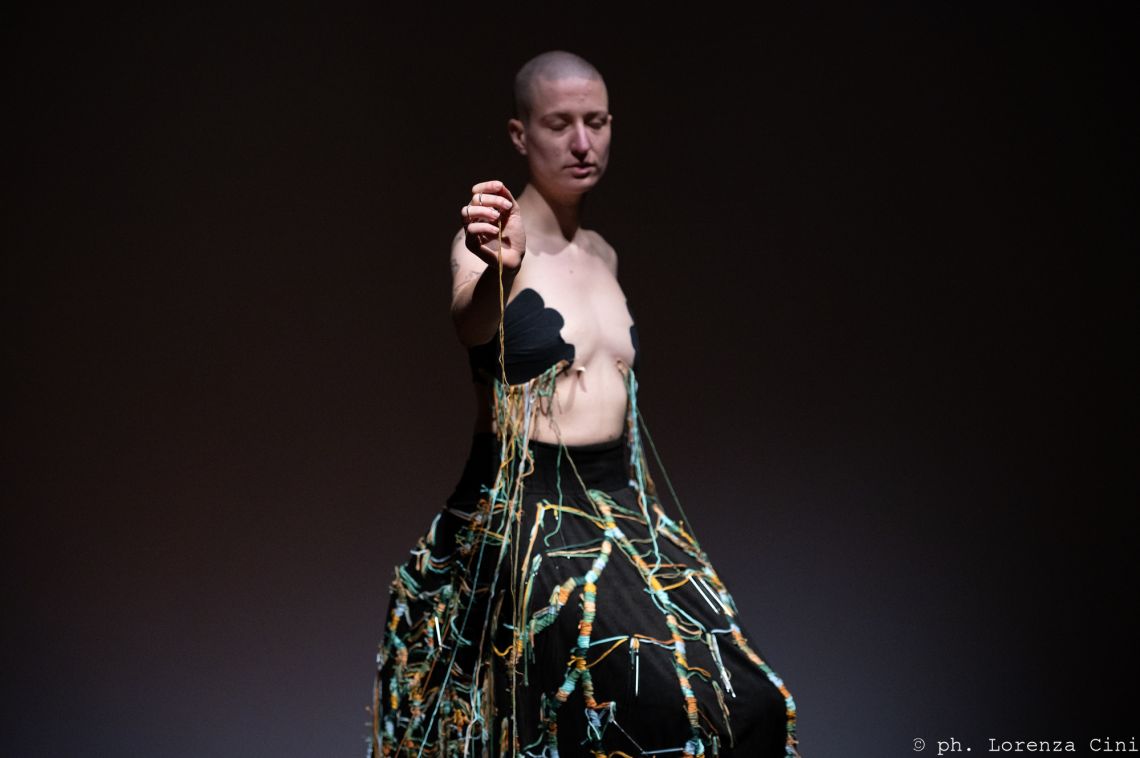
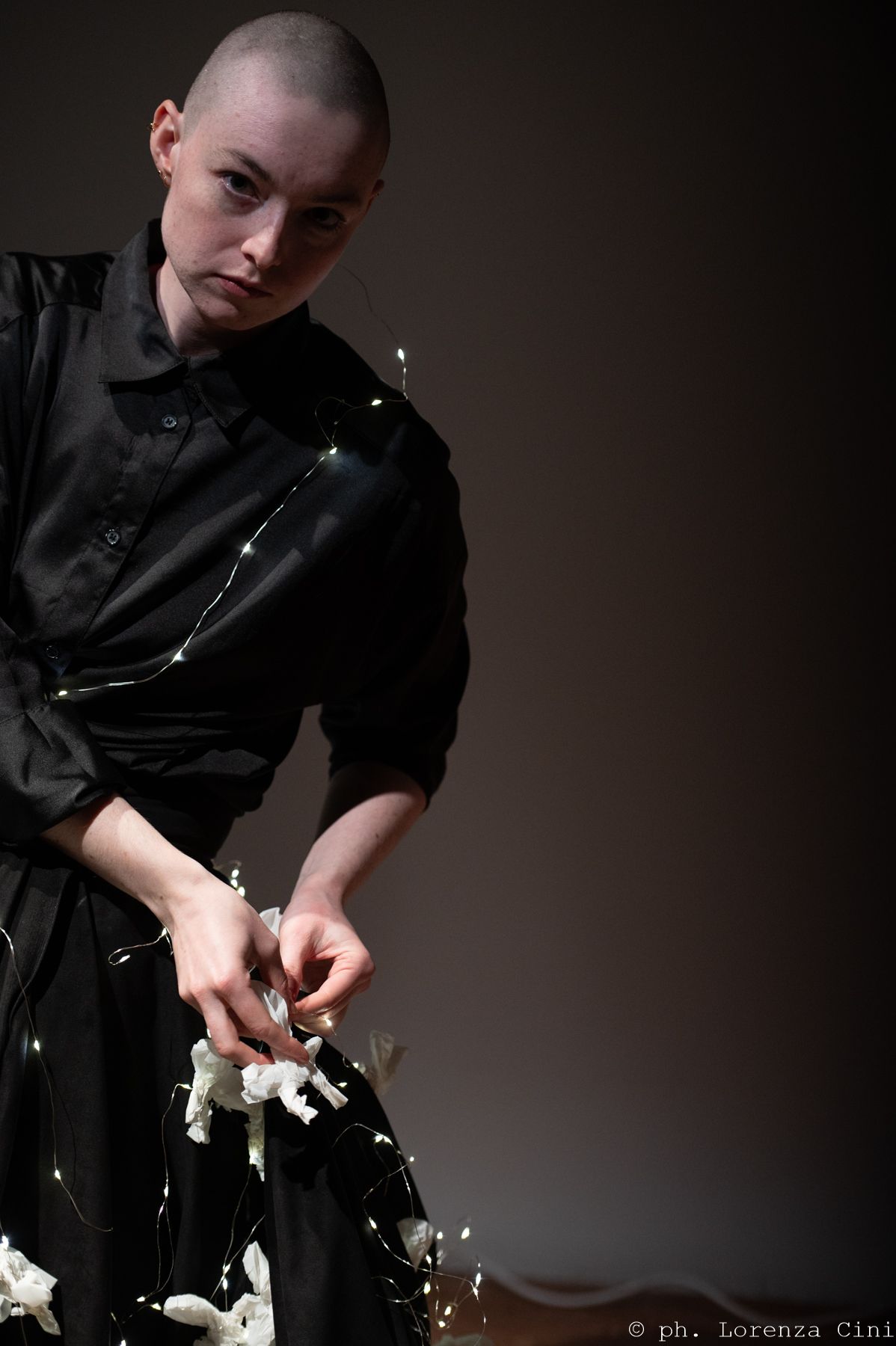
Networks permeate our existence like subterranean roots supporting plant life, invisible until unveiled. A juxtaposition in queerness, reciprocal bonds highlighting two forms of rooting: self-discovery and communal cohesion stretching and growing. Steef has awaited her medical transition for 913 days as 913 are the needles slowly extending their roots. Vicky expands their support network, an homage to those who paved the way to the foundation of our trans*non-binary identities.
Steef Kersbergen (they/them) and Vicky Maier (they/them) have collaborated since 2021. As a nonbinary performer, Kersbergen questions conventions on gender in most of their work, from community theatre to visual arts, exploring all forms of in-betweens, and employing a nonbinary way of thinking in their practice. Maier researches the interplay of audience participation, scenography and ethical ways of storytelling at the threshold of the theatre, installations and image-making.
Curated by VestAndPage. Photographs © Lorenza Cini.
Priiya Prethora Your Wounds Bleed Me
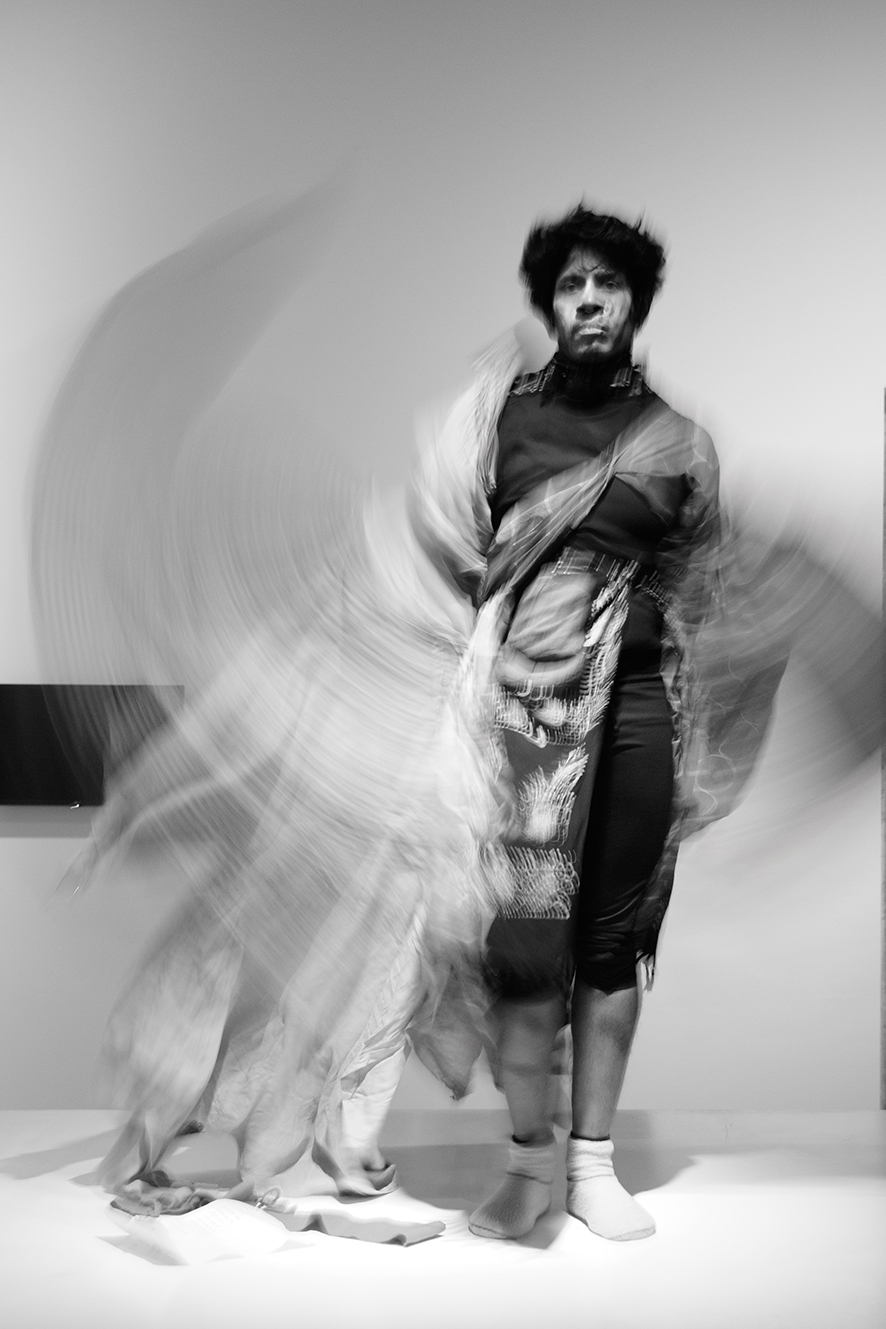
A walking ritual of hymns, prayers, protest, folksongs, love letters and farewells, to gather through voice. Collected through memories of those who live to witness disappearance.
Priiya Prethora (they/them) is a migratory body attuned to traditional folk and martial arts practices, collecting stories and memories, metaphors of nature and queerness of the wild. The flux of everyday rhythms of all human and non-human forms inhabits their sleep. They translate their dreams with sound, physical movement, and immersive textures singing, whispering, walking into ecosystems where identities, memories and truths fluidly morph.
Curated by VestAndPage. Photograph © Alexander Harbaugh.
Gabriele Provenzano Boel
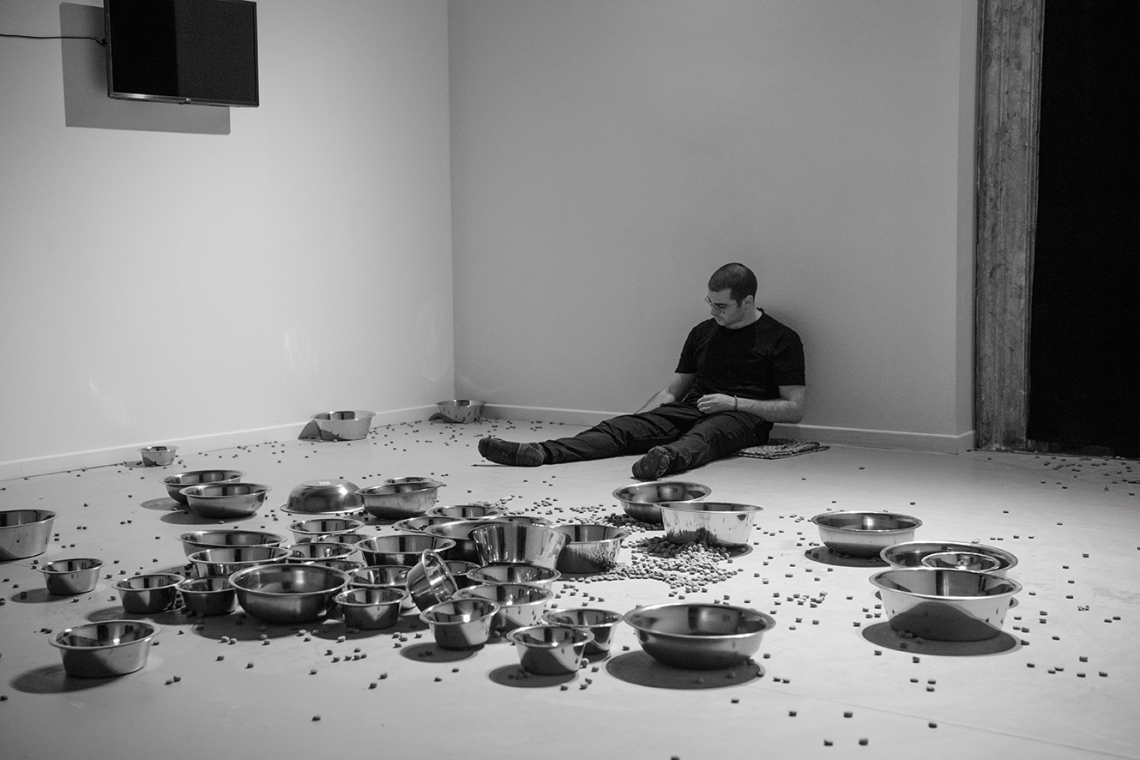
In Foucault’s terms, a docile body encourages obedience, submission and domestication, but its adoption in the world remains often inaccessible. With the same sweetness as cuddling a pet, I will make the audience perceive the violence of those who want to tame the other at all costs. Perhaps my gestures will be refused, leaving me in the solitude of a wasted opportunity. Maybe the performance will succeed precisely then.
Gabriele Provenzano investigates generational problems, deepening the relationship between intimacy and the outside world. Experienced, buried reminiscences translate into functional archetypes to build and share de-subjectified narratives. The search for a thematic continuity makes him a scavenger animal that eats and pulps, adapting to present situations.
Curated by VestAndPage. Photograph © Alexander Harbaugh.
Niya B Re: Rooted
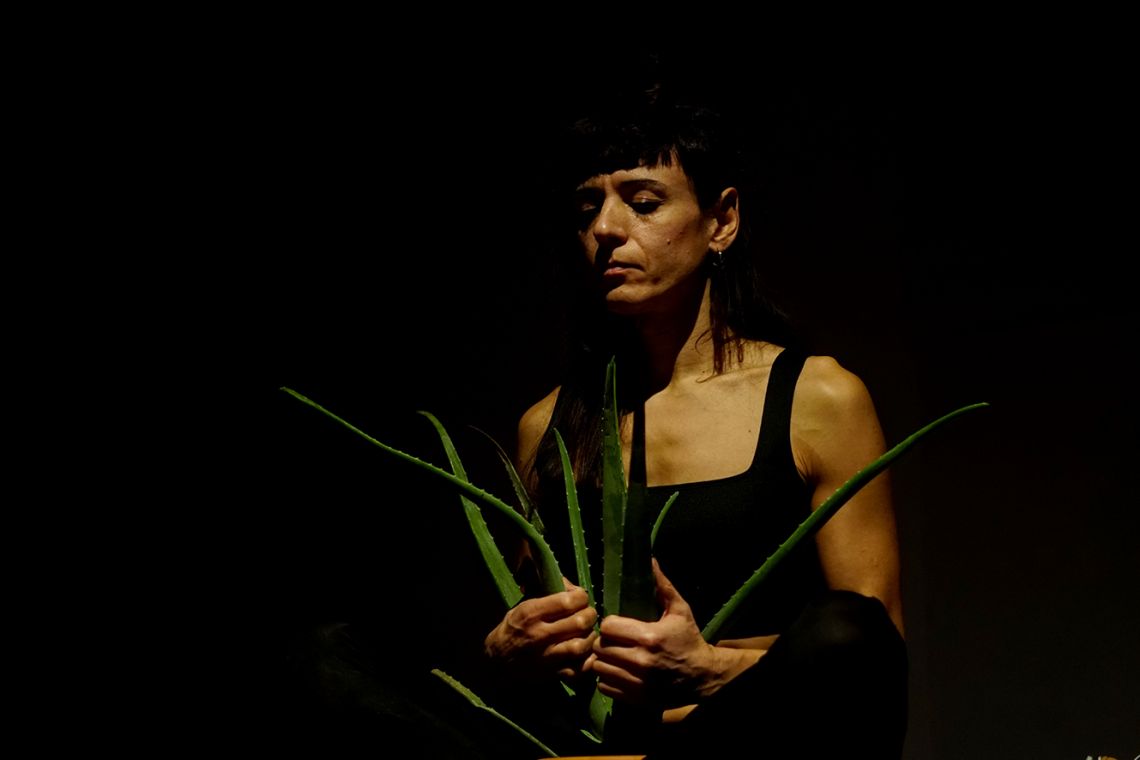
Something about bodies, plants and machines. Something between low-tech and high-tech- Something burning and something cooling. Something liquid, jelly, solid, fleshy and granular. Something unsettling and something soothing. Something lying on the ground and something coming in storms. A healing ritual where ancestral traditions are celebrated and contested, body-based methods meet with land-based knowledge, and the past’s traumas meet the present’s failures.
Niya B (she/her) is a multidisciplinary artist, working at the intersections of visual art and performance on ecology, (trans)gender embodiments, class, mythology and the knowledge held in the land and the performing body. Through eco-intimacy, eco-nurturing and the potential of eco-gender as manifested in the contested site of the transgender body, she maps a multispecies trans-temporality of care within this trans-ecological field of possibilities.
Curated by Agustin Arguello & Gabriel Lyons (PAV Performance Art Video). Photograph © Fenia Kotsopoulou.
Dyana Gravina Collective Birth of Subversive Subjectivity
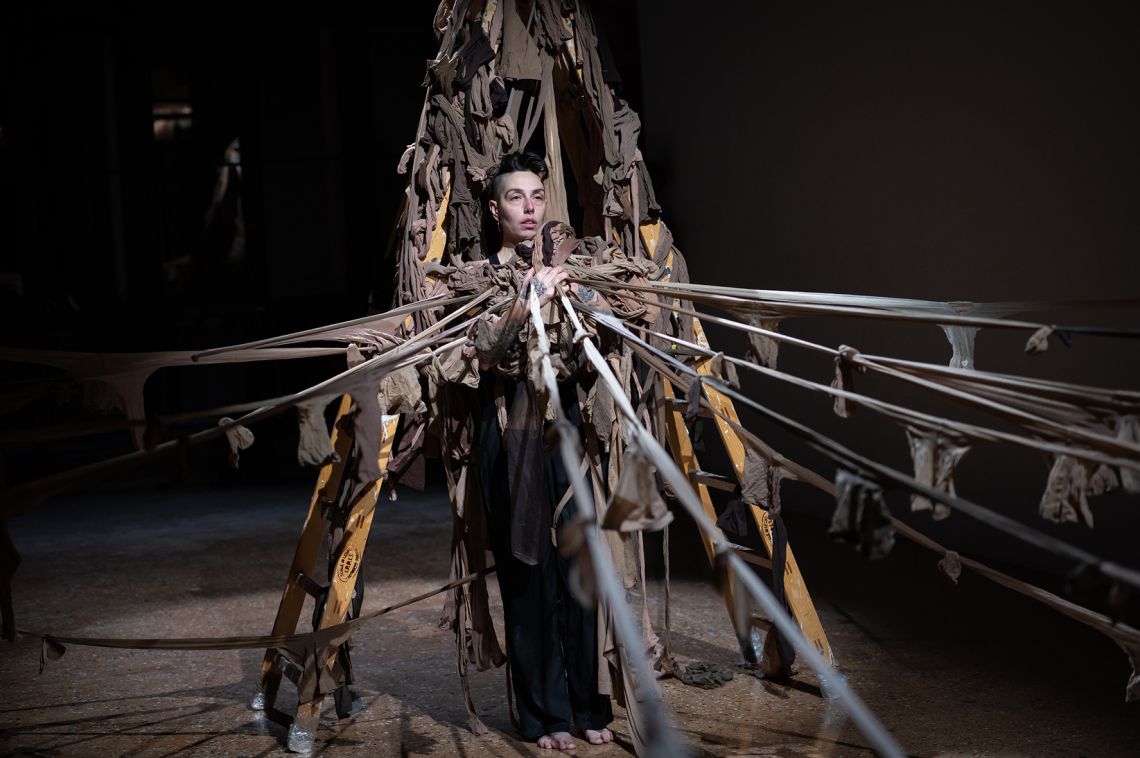
Through an intersectional feminist lens, Birthing Subversive Consciousness examines how historical western religious iconography and binary patriarchal norms impacts contemporary representations of (the) feminine. Reclaiming the se*ual potential of childbirth, the performance explores movements and behaviours labelled as illnesses and remarks how gender stereotypes repress the experiences of s*x acts, and childbirth as its augmentation.
Dyana Gravina (They/She) is an interdisciplinary artist, curator, birth doula, activist, mover, and community builder. They dedicate their efforts to womxn and non-binary artists who are (m)others. Interested in feminism, migration, and body politics, through somatic movement as a research method and autobiographical and collective knowledge, they challenge the perception of the self under social constructions and cultural environments to redefine univocal notions of the 'female'. https://dyanagravina.com/
Curated by Agustin Arguello & Gabriel Lyons (PAV Performance Art Video). Photograph © Lorenza Cini.
ON CLIMATE EMERGENCY
Curated by Verena Stenke (VestAndPage) — EntrAxis e.V.
Becoming Fossil (2023) by Petra Kuppers and Kym McDaniel, 12' 30" min.
Becoming Fossil invites viewers to become time travelers through kaleidoscopic sensations of touch and elemental change. Join in and travel backward and forward in time around our small precious planet. Ride the waves of climate emergencies and experience both extinction and resiliency in human and more-than-human touches.
Direction: Petra Kuppers. Edit and Sound: Kym McDaniel. Camera: Petra Kuppers, John Campbell and Kym McDaniel. Additional Sound: Rebecca Caines. Performers: Rebecca Caines, John Campbell, Charli Brissey, Amy Ackerman, Stephanie Heit, Desiree Mwalimu-Banks, Mikel Mwalimu-Banks, Petra Kuppers, Kym McDaniel, Marina “Heron” Tsaplina, and moira williams
Exhibition view photographed by Edward Smith.
Waiting with the Waters (2023) by Vicky Maier & Steef Kersbergen, 16' 57" min.
The disappearing home, flooded by the rising sea levels. The tidal feeling of solastalgia,the homesickness when you are still at home, but you know it’s under threat and will one day be taken by the water. Areas created and protected by human efforts from encroaching waters are not just a home for people but also for a diverse ecosystem. The video’s performer, Steef Kersbergen, learned as a child that their hometown in the Netherlands would flood irredeemably and, with it, a third of the country. The precise timeline of this event remains uncertain, with scientists offering varying estimates. The Dutch people are divided in dealing with this eventuality. Some are preparing. Others sit with or suppress the discomfort, push away the water, fear, grief, and sadness and continue living. As for now, it is okay.
Concept and camera: Steef Kersbergen & Vicky Maier. Performance, voice, video edit: Steef Kersbergen. Music: Mar Esteban Martìn. Voice edit: Vicky Maier.
Exhibition view photographed by Fenia Kotsopoulou.
Your wounds bleed me تمہارے زخموں سے میرا خون (2023) by Priiya Prethora, 12' 06" min.
The last walk to a melting glacier and the rituals of walking the moist ground it reveals by leaving. Things to carry with oneself on wounded paths and singing to the ancient frozen imprints disappearing into the memory of algal blooms sprouting in the warm seas. A journey on foot, connecting homes across the nomadic landscapes of borrowed belonging. A body alive, in the haunts of breaking ice.
Exhibition view photographed by Fenia Kotsopoulou.
ON MIGRATION, SENSE OF BELONGING AND COMMUNITY
Curated by Andrea Pagnes (VestAndPage) — APS Studio Contemporaneo
NOWHERE (2023) by Nicola Fornoni, 29' 25" min
An abandoned NATO base built during the Cold War on a mountain pass linking three valleys to each other in north Italy. Old business lines, passageways and other morphological peculiarities. Sound waves, cymbal vibrations and fake animal puppies mark an imaginary sense of the time passing. The landscapes around take on ascetic and fleeting colours. Those zones that were once controlled from now on are a way out. The senses conjugate an escape trajectory from the body to the sky. The video consists of three chapters. Each of them begins with a description of emotions. The story develops through symbols concerning identity, presence, existence and condition. Documentary scenes alternate with anatomical frames. Keeping direction straight on, the protagonist discovers new territories—nowhere is everywhere. He trespasses and tracks them down with his orthopaedic devices, migrating from a tunnel’s darkness to the light, like a miner who reaches the surface after spending endless moments in the depths of the earth where the rumble of metal makes its way through the rocks.
Filmed and edited by Julia Pietrangeli.Still from the video. Courtesy the artists.
BEING IN THE ACT OF BECOMING (2023) by Matilde Sambo, 5' 33" min
I’m here, inside me. I’m always moving. My home is myself.” Everything rotates around the question: “Where are you now?” Those who ask this question may also look for coordinates for themselves. A silent voice moves along the moving images. Thoughts about being and belonging to oneself are juxtaposed over natural landscapes—nature itself. Movement is the constant that binds the bodies. There is a need to visualise the self and others geographically to acknowledge the tangible existence of things. The sea is the protagonist—water’s continuous flow, water as life and death, the element and place to start a journey, a part of a journey, a little fragment of life. Again.
Exhibition view photographed by Fenia Kotsopoulou.
19 GHOSTS AND ONE YARD (2023) by Sabrina Bellenzier & Giorgi Rodionov, 13' 25" min.
It has been 112 years since one single building in Tbilisi has stood as a silent witness to the passage of time, hosting countless generations, families, and lives. Facing all wars, national catastrophes, economical disasters and other troubles throughout all of its life, now it is the time for it to bid farewell to the 19 families who have called it home, as it prepares to be consigned to history forever. After the temporary relocation the residents of the building will return to the same pin on the map but to a newly built apartment block. The movie is made by Sabrina Bellenzier and Giorgi Rodionov, who explore the migration of memories from home to home at the same location, where the new inhabitants become the ghosts of the ruins the new home was built on. This project was developed in collaboration with Untitled Tbilisi, an art organisation that has been an integral part of the house for years, further emphasising the connection between the building and the creative work surrounding it. The film appears to be a reflection on the passage of time, the continuity of memory, and the transformation of physical spaces.
Produced in collaboration with Untitled Tbilisi.Exhibition view photographed by Fenia Kotsopoulou.
ON SOCIAL INCLUSION
Curated by Anja Foerschner — ECC Performance Art
Mare Nostrum (2023) by Chantal Spapens, 37' 49" min.
For centuries, the Mediterranean Sea has occupied a central place in the evolution of human society and Europe. It is both a physical barrier to human mobility and an element that connects land and continents. Odysseus pursued his hero’s journey around the Mediterranean basin. Today, the Mare Nostrum is a precarious, tragic space where immigrants, attracted by the siren’s song of salvation and sanctuary in Europe, embark on a perilous journey that could lead them to exclusion or inclusion. The word siren stems from the Greek σειρά (seirá: rope, cord) and εἴρω (eírō: to tie, join, fasten), resulting in the meaning of the one who binds or entangles. Therefore, the siren will knot deceptive nets of blood-red ropes on the Mediterranean seashore, ultimately leaving them behind. Whether they stay there to protect or imprison, for salvation or damnation remains unclear. Vittorio Venturoli writes this performative piece brings one to reflect on the dual relationship of migrants with the Mediterranean. Vehicle of migrations, the sea is numb and neutral in its endless role of levelling, smoothening edges, softening, tie after tie, even the sharpest will. Even the loudest storms are muted with time into a still, quiet fairness. It never alters the motion of its impartial ruling. And so, as guardians, instruments of its blind justice, the sirens weave the net of its will, enveloping wanderers, conquerors and fugitives. The performer embodies the siren—the tool of its choice, the voice of the waves, an ambiguous being casting nets that can save or capture the lost. Even the lucky, mischievously lulled to foreign shores know the cost of salvation. They know the intangible net, binding their lips, tying their hands. Their nets are the culture that, laying on the wetted shores, shapes the earth beneath, its symbols, its costumes, and its meaning. Knot after knot, more sailors land, more cultures collide, and history is shaped by them.
Exhibition view photographed by Fenia Kotsopoulou.
I cannot be silence(d) anymore (2023) by Kirsten Heshusius, 16' 12" min.
Only by undergoing abuse do I now see it around me all the time—not only the abuse I experienced but also racism, gender inequality, abuse of the planet and the underlying structures of power. What strikes me in my waking up process is that the victims of whatever abuse suffer silently. Speaking up about it doesn’t help most of the time because people don’t believe you or tell you it wasn’t all that bad, whereby they are causing extra harm and isolation. I understand this mechanism of disbelief now. If you acknowledge abuse, you must step out of your comfort zone and leave behind this false sense of security. You have to take responsibility. Most people won’t do this. I stepped out of the groove—I cannot be silence(d) anymore.
Still from the video. Courtesy the artist.
The Struggle for Visibility (2023) by Kat Noli, 9' 25" min.
When you are housebound, you become mainly invisible to the world. Unable to participate in the daily activities that happen outside the door of your home, it is easy to start feeling like you don’t exist. In The Struggle for Visibility, the artist attempts to become part of the outside world. They are covered in a golden silk sheet and stay close to the ground to represent their ongoing separate reality as chronically ill. In the public space, they become hyper-visible whilst remaining largely hidden from view. In their dreams of belonging to the outside world, they desperately try to overcome all the barriers it poses. In the last attempt to become more visible, they climb the highest stairs in the busiest part of town, but they find that this is too much to ask of their fragile body. Also, it does not lead to the meaningful social engagement they had wished for. Instead, they end up alone, exhausted by the effort of trying. For sick and disabled bodies to become more visible in public spaces, we need societies to adapt to our needs rather than push ourselves to become more visible to society.
Exhibition view photographed by Fenia Kotsopoulou.
ON BODY AND CITIZENSHIP
Curated by Francesco Kiais — Mind the G.A.P.
ENOSSIS (2023) by Virginia Mastrogiannaki, 19' 21" min.
A video performance with a spoken text as a by-product of the “Treaty on European Union” and the “Treaty establishing the European Community”. Only the paragraphs, articles and points containing the word Enossis (Union) have been saved from the original texts of the treaties. All terms like bank, banking, ECB (European Central Bank), chapter, costs, country, economic, European, fees, government, governmental, international, market, monetary, nation, national, NATO (North Atlantic Treaty Organization), people, and state have been removed. Without adding or replacing phrases and words (except changing grammatical issues where required for the Greek language), the new text dismantles the institutional character of its members (Member States-Nations) and the central economic/monetary profile underlying the constitution of the European Community. The video is a comment on the nature of the mother tongue since it has to be read so that the missing words will not affect the pronunciation of the terms that follow them. The new ENOSSIS text seems more akin to a humanist manifesto than an economic and monetary treaty.
Exhibition view photographed by Fenia Kotsopoulou.
Universal Rights i.e. Naked Statelessness (2023) by Yiannis Pappas, 8' 24" min.
A stray dog that has been given a name has a far greater chance of survival.— Hannah Arendt
The core themes of this performance for the camera are the problem of moral principles and the relationship of the body to citizenship from the perspective of Stoic philosophy. Stoicism (a school of Hellenistic philosophy that flourished in Ancient Greece) focuses on human nature as part of universal nature and cosmic sympathy: the sense that the universe is an indivisible living organism, always in flux. Concurrently, the video is accompanied by an evocative depiction of an individual’s distress, serving as a poignant reminder that rights are achieved through united efforts and resilience during periods of oppression, devastation, and lamentation. Pappas’s artistic endeavour seeks to capture the essence of existential unease within today’s civilization. By weaving together individual and collective human and non-human connections with concepts encompassing the body, citizenship, space, time, mysteries, and the opposition utopia/dystopia, Universal Rights i.e. Naked Statelessness, deploys the camera as a vehicle for testimony and documentation. It deciphers a contagious and symbolic discourse, functioning as a mechanism to challenge the prevailing inclination towards the uniformity of thought and behaviour.
Exhibition view photographed by Fenia Kotsopoulou.
Courotrophe (2023) by Despina Zacharopoulou, 11' 04" min.
A performance for the camera exploring the theme of ‘Body and Citizenship’ and how the maternal body might operate as a site for this passage from Nature’s world of violence and wilderness to the world of the polis and its language brought by theatrical and philosophical discourse. The video has as its starting point the passage to citizenship concerning the birth and use of language. Accordingly, the performance’s title stems from one of the roles of Artemis in Ancient Greece: Kourotrophos (Greek: Κουροτρόφος, “child nurturer”) and Lochia (Greek: Λοχία, “belonging to childbirth”). Artemis was responsible for the delivery and upbringing of children from childhood to adulthood and civil life.
Concept and Performance: Despina Zacharopoulou. Text: “The Night Song” by Friedrich Nietzsche, transl. to English by R.J. Hollingdale, transl. to Greek by D. Zacharopoulou. Lights: Giannis Karounis. Also featuring: baby Nikolaos-Zacharias Karounis.Exhibition view photographed by Fenia Kotsopoulou.
ON GENDER EQUALITY
Curated by Marta Jovanovic — G12 HUB
Adaptation (2023) by Katarina Rankovic, 12' 09" min.
Mrs. Dalloway said she would buy the flowers to herself. –Virginia Woolf, Mrs. Dalloway
12 sempreviva seeds were grow at Belgrade balcony and after two months of adaptation they were adopted by 12 women. This is a tribute to all women, to remind them that their "invisible" interior is their brightest aura. This movie shows the love that we carry in the unique existence of a female body and soul which is main key to eternal flame.
Still from the video. Courtesy the artist.
SATIATING THE SENSES: DINING ON NOTIFICATION (2023) by Sara Kostic, 21' 31"
Concept delves into the notion of notifications and social media becoming our sustenance, our daily food, and a captivating addiction that consumes our lives, shedding light on our modern habits and obsessions. Performance challenges our reliance on technology and explores the impact on our senses. Breaking 12 plates symbolizes a year and time passed in our digital dependencies. Background notification soundscape reminds us of the constant stream of information we face daily, while the dripping water represents emotional complexity and the paradox of our insatiable thirst for connection. The performance prompts reflection on our relationship with technology, its effect on sensory experiences, and the content we consume. Through broken plates, notification noises, and dripping water, it calls for deeper, more meaningful connections and conscious consumption.
Still from the video. Courtesy the artists.
THEE DAY NUMBER 16 (2023) by Aleksander Zain, 11' 26"
The performance turns a regular medical ritual performed by an artist in his private life into an action, representing the continuing process of repetitive life events that also shape us as people (and there is a question about how much we let them shape us?). This is a story of personal saviour, solitude, inner thoughts colliding, transition, mental and physical health, strength, and ultimately, an interest in how we can turn a forever occurring event into an artistic ritual.
Still from the video. Courtesy the artist.
OPEN REPERTOIRE
Curated by Andrea Pagnes (VestAndPage) and Agustin Arguello, Gabriel Lyons — PAV Performance Art Video
TIME, SPACE, NOTHING (2018) by Franko B, 14' 44" min.
"Hi,
I'll tell it in English.
It was a moment
one freezing afternoon,
left,
wandering…
wandering on the beach.
There were a lot of people,
There were people, dogs, children.
I noticed this figure
that from behind looked like a director,
it seemed that in front of the waves, he had an orchestra,
and organised and directed these waves.
The sea wasn't that rough,
but maybe that's how he saw it.
And he had no one,
he was pretty isolated,
self-isolated.
Inside this…
He didn't talk. He directed.
And I even came close
before I made the film,
and it was just,
it's as if he saw something,
He was directing.
Yet,
To me, he moved me,
He touched me,
seeing him.
And then the text came to me.
I didn't even have to write the text,
I told it and then copied it,
Yes, yes.
I never wrote it
watching the video after,
a few days later,
I improvised."
Franko B.
Exhibition view photographed by Fenia Kotsopoulou.
ALIEN PLANET 2.22 (2023) by La Pocha Nostra, 14' 26" min.
Fed up with the big city life, the pandemic, ecocide, and generalized violence, in August of 2022, Gómez-Peña and Balitrónica ran away to the gorgeous desert of Roswell, New Mexico, the oldest desert in North America. The RaiR Foundation generously housed and supported their strange filmmaking process during their stay. Gómez-Peña and Balitrónica invited artists EmaLee Arroyo, Sarah Stolar, Jess Fitz, and Kate Turner to make a performance art film. There was no script or film score, but rather drafts of performance rituals, a bunch of found props, handwritten poems, and some equipment to play with. The word “alien” was on their mind. What follows are excerpts of the material created during this residency.
Credits: Sarah Stolar and EmaLee Arroyo.Exhibition view photographed by Fenia Kotsopoulou.
Monstras (2019) by Pacha Queer, 30' 58" min.
In this documentary, the Pacha Queer movement, a dissident, rebel, counter-cultural, and “self-festive” community based in Quito, Ecuador, uses performance art to campaign for social, political, and sexual liberation. Monstras has been awarded as best film at Cine+Perfo 2022.
Directed by Melida Coello.Exhibition view photographed by Fenia Kotsopoulou.
Metamors (2023) by Francesca Fini, 3' 40" min.
A colorful vortex that transports the observer to a dreamlike dance between the veil of being and the abyss of becoming. Each mask is an echo, a shard of stars and stories woven into the threads of the female soul's polyhedral mosaic.
The artist, the Sibyl of a Thousand Faces, wears masks that speak the names of deities, warriors, witches, and dreamers in this hallucinogenic garden of fluid lights and shifting shadows. But be cautious! The masks are dishonest artificers who play with our perception of reality. They are gateways into digital realms, worlds of pixels and code, places where being a woman is a kaleidoscope of unlimited possibilities.
Exhibition view photographed by Fenia Kotsopoulou.
these teeming forms (2021) by Joseph Morgan Schofield, 28' 33" min.
Shot on England’s South Pennine Moorland in a breath between lockdowns in 2021. These windswept hills formed Joseph’s adolescent horizon and they have returned there in adulthood, walking out into the land holding grief, seeking connection. The film has a sensate and mythic quality; performance actions to camera are collaged with cyanotype printing processes of analogue photography, speculative texts and an original score. The wet, wily moorland contains large peat deposits, produced over thousands of years as normative processes of decomposition are frustrated by the great quantity of water that falls on the hills. The peat is a collage of animal and plant matter, minerals and weather. Like the body, the land is an archive. The film is framed by an interview with the artist’s father, who speaks of his own remembrance of a haunting adolescent encounter many decades previously. Queer ecologes are imagined here as a process of wilding, of entering the land and being opened by it. Memory and desire, history and loss, future and fantasy become porous, contributing to a textural and sensate meditation on living.
Commissioned by ]performance s p a c e[ and supported using public funds by Arts Council England. Joseph Morgan Schofield - concept, editing, performance, text. Fenia Kotsopoulou - cinemtaography, editing. Mitchell Sowden - composition. Zack McGuinness - analogue photography. Eric Schofield - performance, text. daz disley - audio post-production, colour correction. With thanks to Benjamin Sebastian, Es Morgan, and MycoLective: Ama Josephine Budge, Angela Chan, Fiona MacDonald, Laurél Hadleigh, Linda Persson, and Sonia E Barrett.
THIS IS NOT YOUR TERRITORY (2022) by Fenia Kotsopoulou, 24' 32" min.
A performance for camera taking as a starting point the killings of women by their partners, during 2021 in Greece. Domestic (and other forms of) violence, inflicted predominantly on female-identified subjects around the globe, remains under-reported, stigmatised, and kept as taboo behind doors: devastatingly pervasive in capitalistic, patriarchal, hegemonic, and (hetero)normative societies. The performance whilst using specific signifiers and (symbolic) references focuses on skin self-writing and dancing as acts of resilience and (self)empowerment THIS IS NOT YOUR TERRITORY; is not only a performance for the dead but mainly for the still alive ones, the daily survivors, including the children behind the closed doors, and their joint screams. There is not enough space for the names of all of them, but definitely, they are not forgotten.
Exhibition view photographed by Fenia Kotsopoulou.
MEMENTO VIVERE (A WORK THAT WILL END IN 20 YEARS) (2023 – ) by Kyrahm, Mariaelena Masetti Zannini, Julia Pietrangeli, 15' 12" min.
Parents and their sons and daughters are documented in their homes as they try to tell each other everything by simulating a goodbye. After 20 years, the performance will be repeated with the remaining people (most likely sons and daughters) who will return to tell "nostalgies, conquests, losses, successes, failures of the pact made. Born during the difficult period of the pandemic, this project aims to give a worthy farewell to loved ones where words, memories and promises are entrusted to this participatory work that will end in two decades.
Exhibition view photographed by Fenia Kotsopoulou.
GRAAL (2023) by Kyrahm, 43' 07" min.
People from different parts of the world gave their blood in an ancient ritual that ended with a simultaneous embrace with individuals whose countries are in conflict. The intention is to bring the blood to an Indian reservation in Arizona to use it as nourishment for the cultivation of a flower in the native lands, spaces "granted" to those who should be of them by right.
Ecce (H)omo, Warriors (2016) by Kyrahm, 16' 10" min.
With humility I brought together these lives who agreed to take part in the performance where they would voluntarily showing themselves and their experience without skin: a two homosexual mothers and their child, two people in an embrace to talk about disabilities and sexuality, the embrace between blood donors and recipients, a son who takes care of his elderly sick mother, the tears of a silver-haired Venus who looks at her face marked by time, a woman who played the recorded voice of her dead partner after 23 years of love, the courage of another woman to communicate a message of encouragement despite the cancer. The role of the voice is fundamental: the voice of died people who are no longer here, the voice that changes with time and illness, the voice of the lyric soprano that accompanies and elevates. They ask me what Ecce (H)omo, Warriors consists of. I would simply answer: "It is a project about love".
Exhibition view photographed by Fenia Kotsopoulou.
The VENICE INTERNATIONAL PERFORMANCE ART WEEK 2023
is under the artistic direction of its founders VestAndPage (Andrea Pagnes & Verena Stenke).
Co-curated by Anja Foerschner (ECC Performance Art), Marta Jovanovic (G12 Hub),
Francesco Kiais (Mind the G.A.P.), Agustin Arguello & Gabriel Lyons (PAV).
Produced by Studio Contemporaneo, Live Arts Cultures, EntrAxis and PAV Performance Art Video.
The DigiLabAir exhibition is co-funded by the European Union.
In collaboration with the Goethe-Institut Mailand.
Supported by the European Cultural Centre (ECC), We Exhibit, Venezia Prime Scelte, Daily Press.
Cultural partnership: Accademia Unidee – Cittadellarte Fondazione Pistoletto, Biella, and RUFA Rome University of Fine Arts.
Under the patronage of Regione Veneto, Città Metropolitana di Venezia and Le Città in Festa.
Technical direction: Aldo Aliprandi, Giovanni Dantomio
Logistics: Giorgia De Santi, Giorgio de Battisti
Event writer: Giulia Casalini
Photographers: Lorenza Cini, Hugo Glendinning, Alexander Harbaugh, Edward Smith
Videographers: Matilde Sambo, Orlando Myxx

